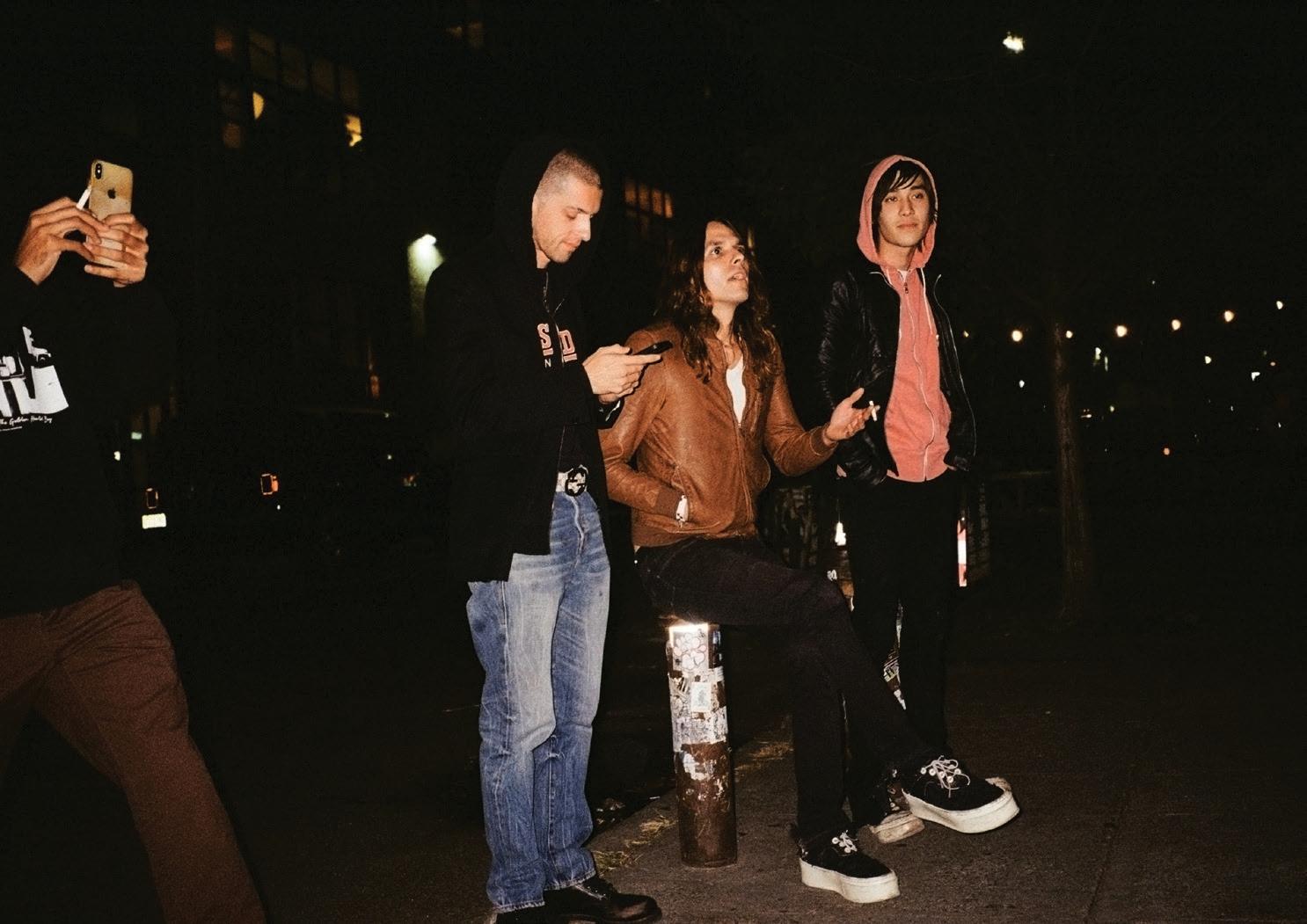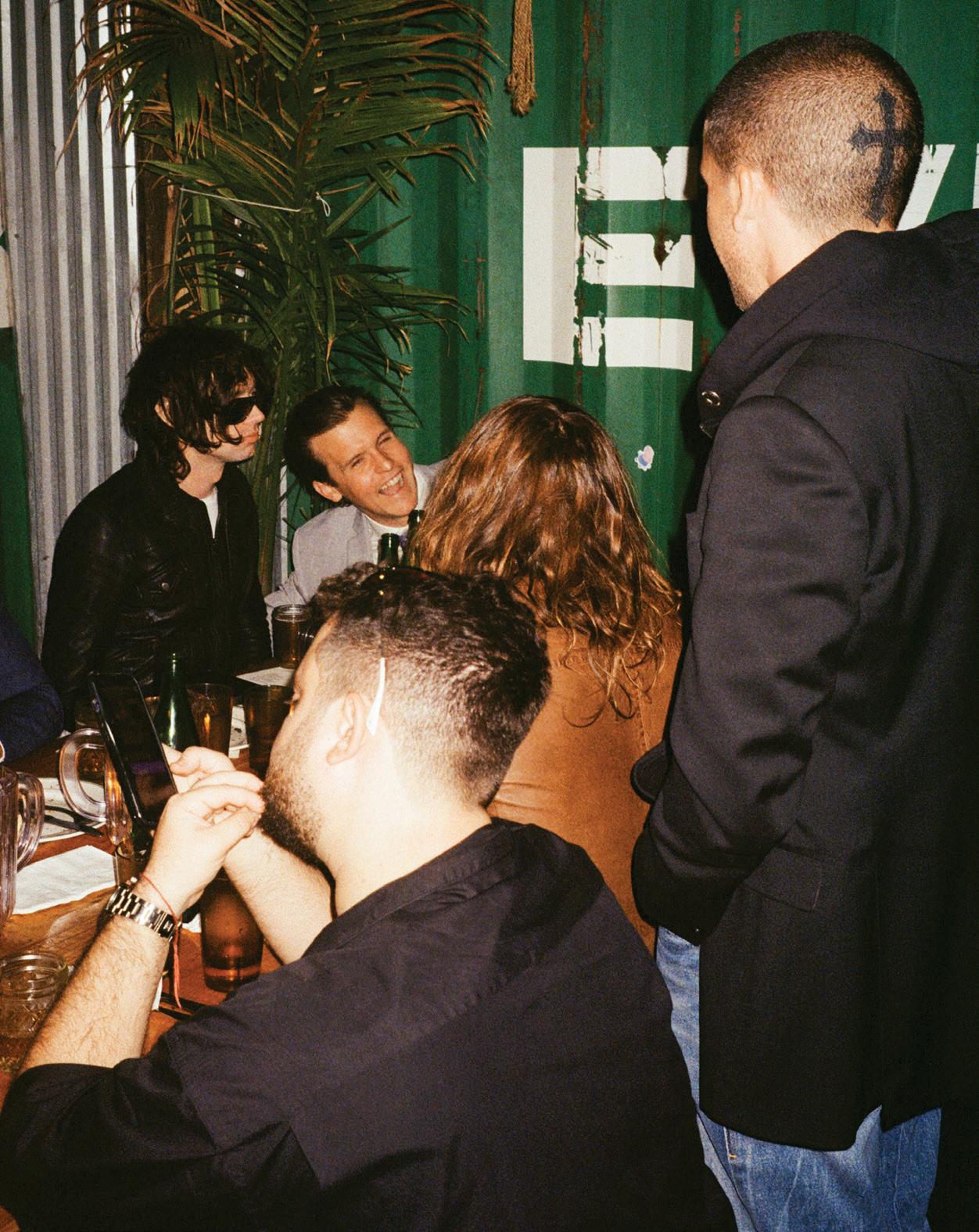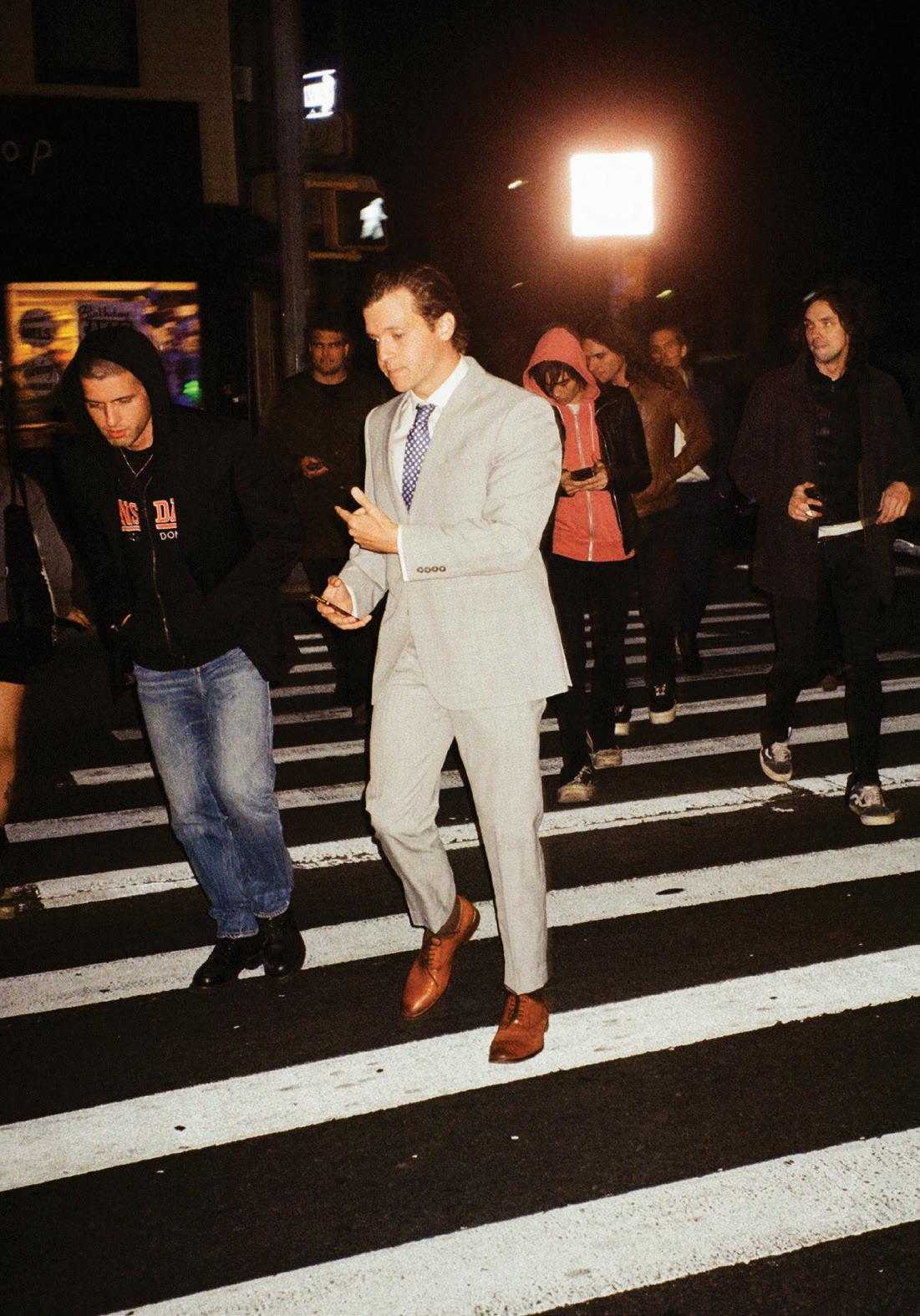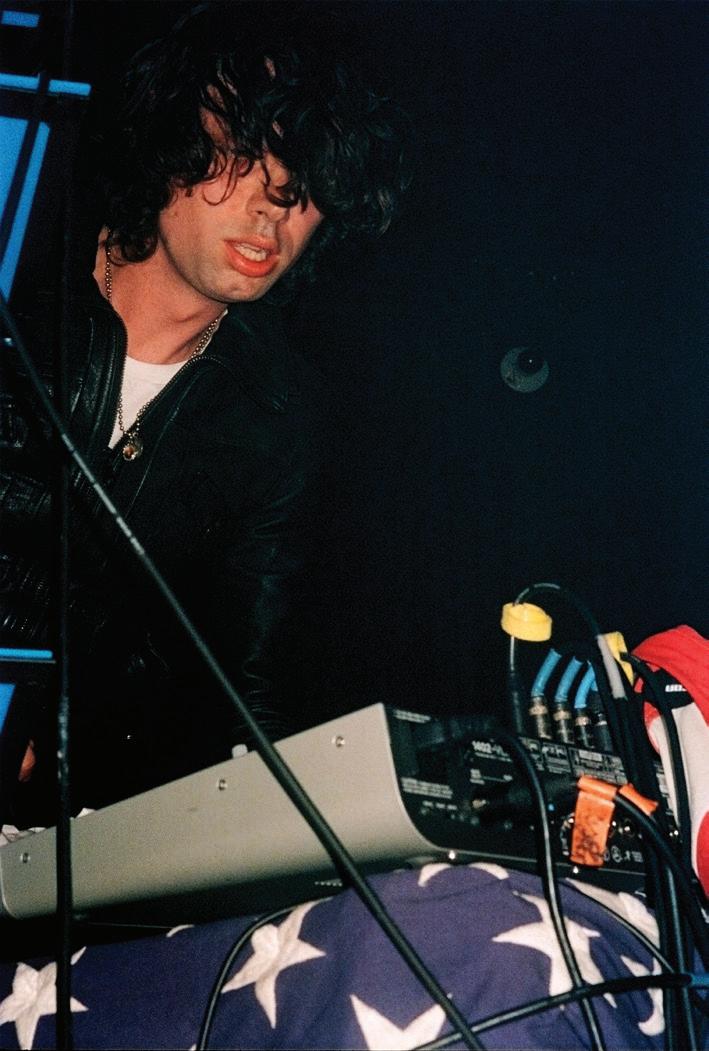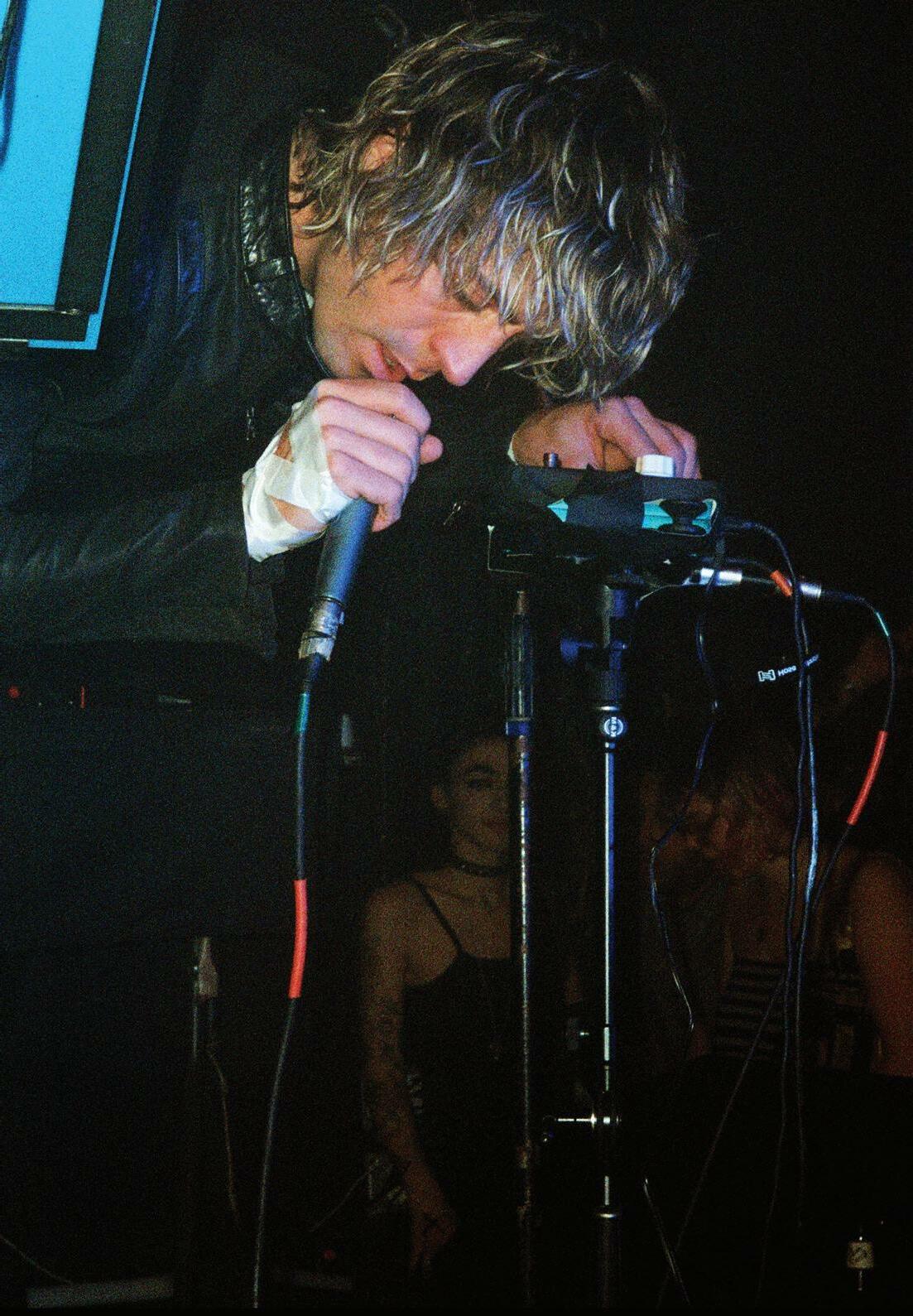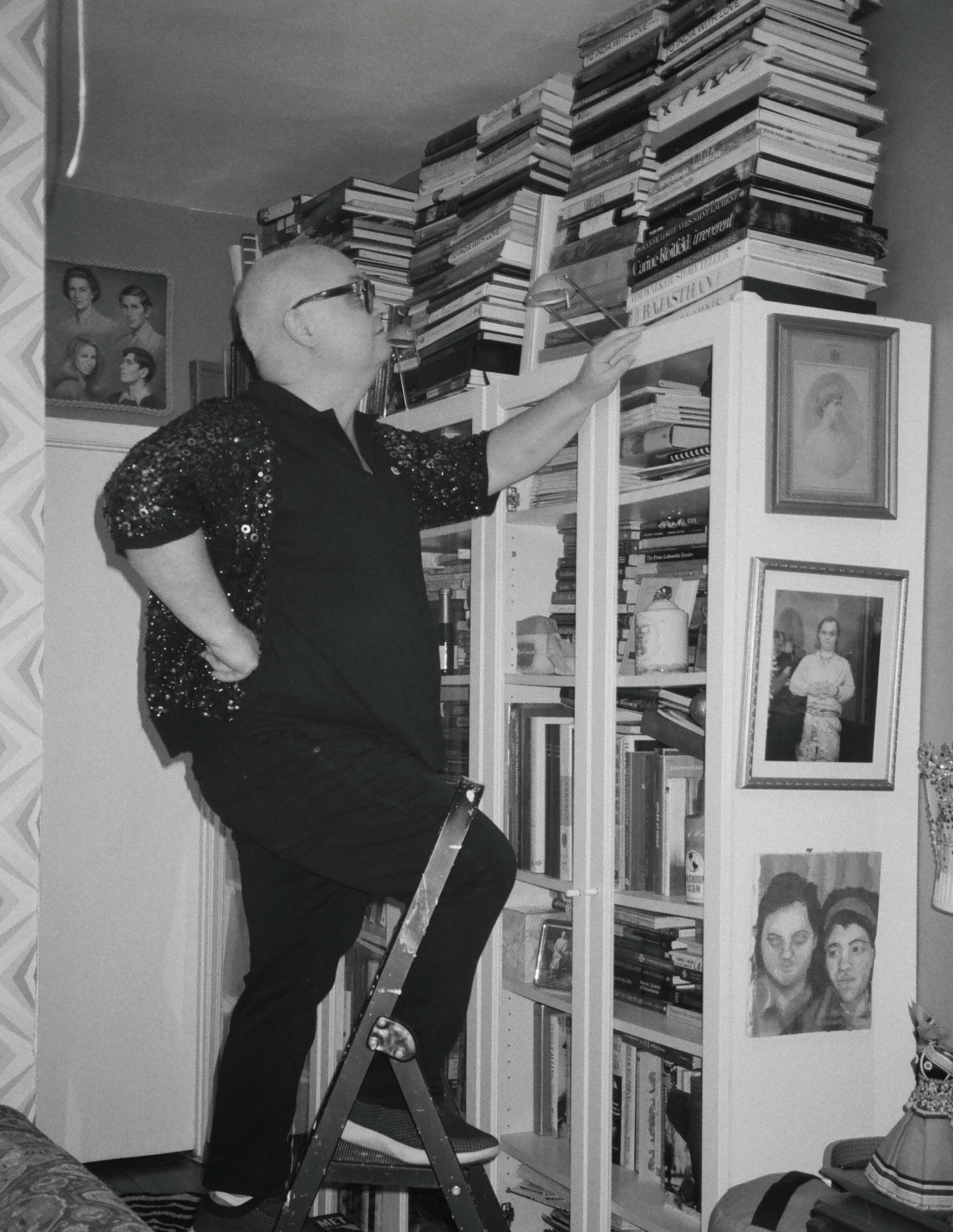
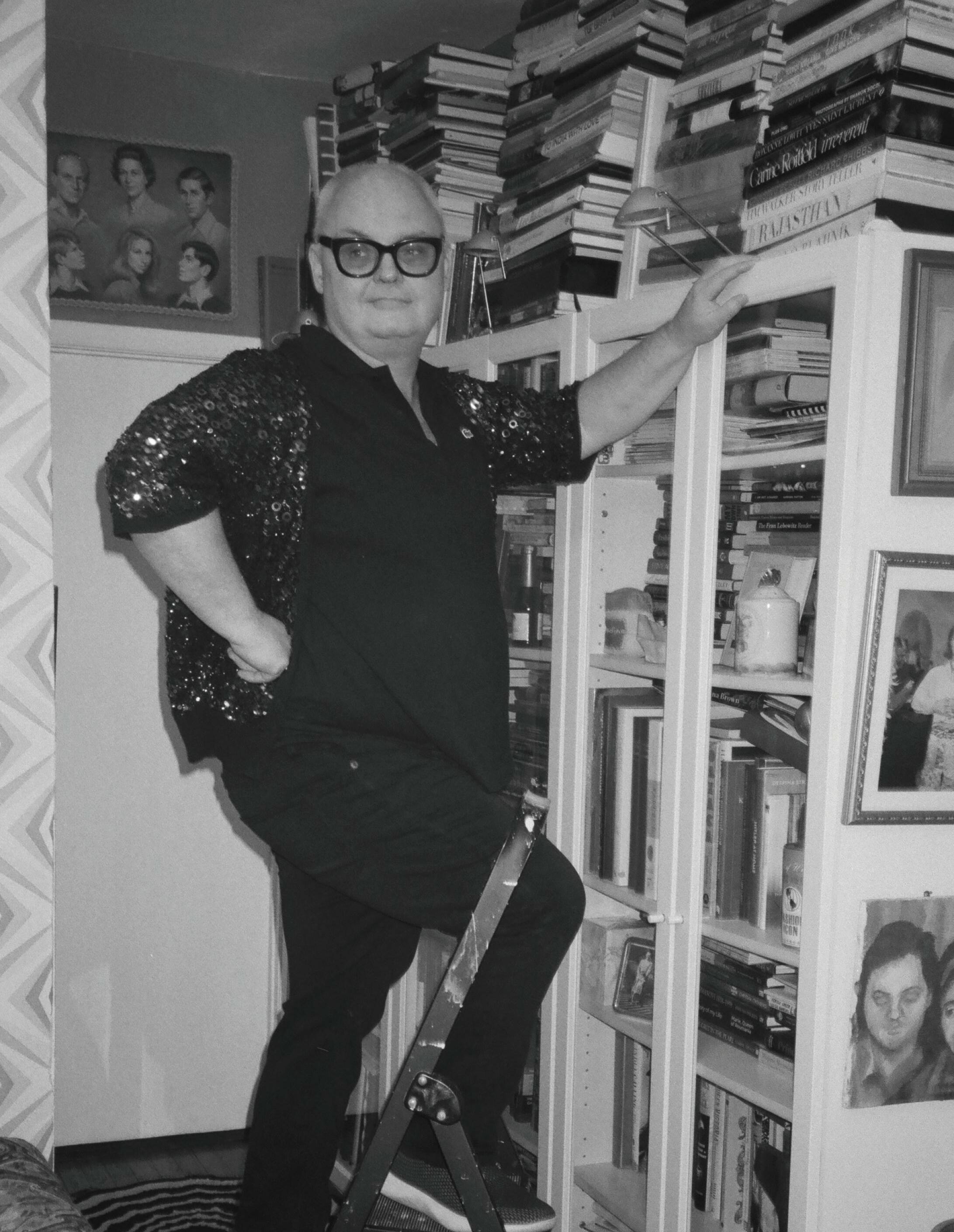
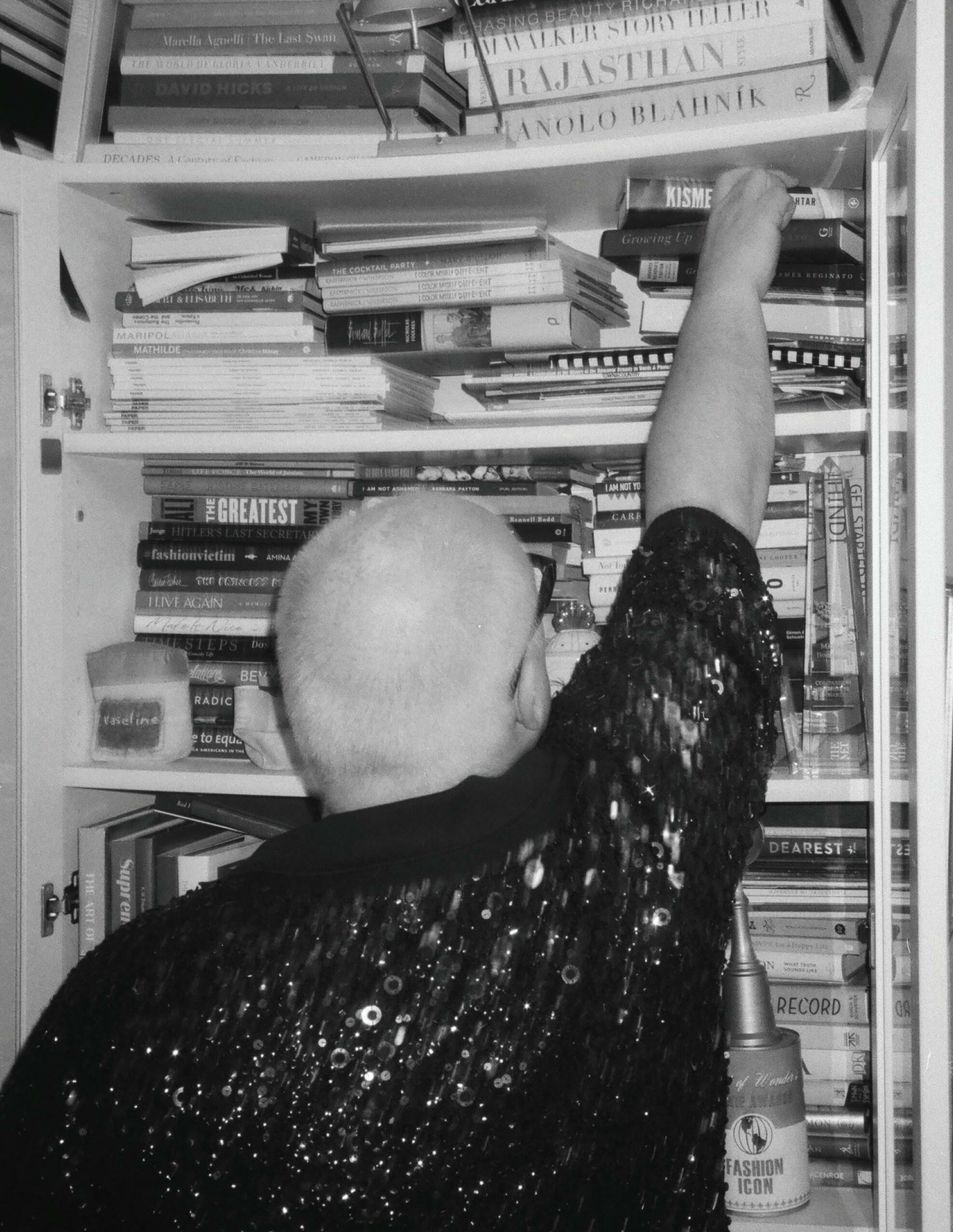
T
Transcend ecne
he
noitidE
EDITORIAL
Sophie Cohen
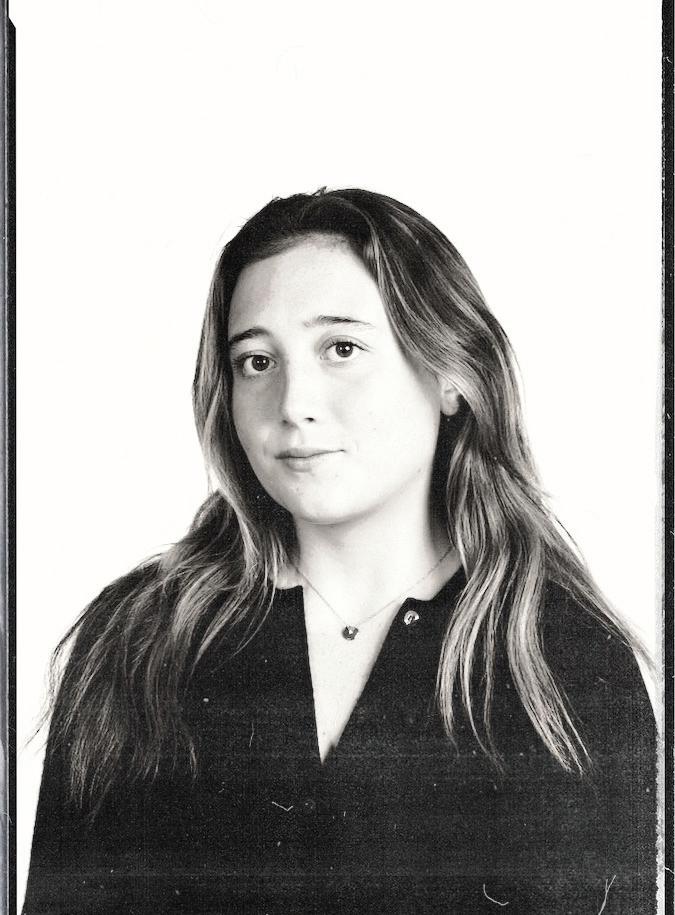
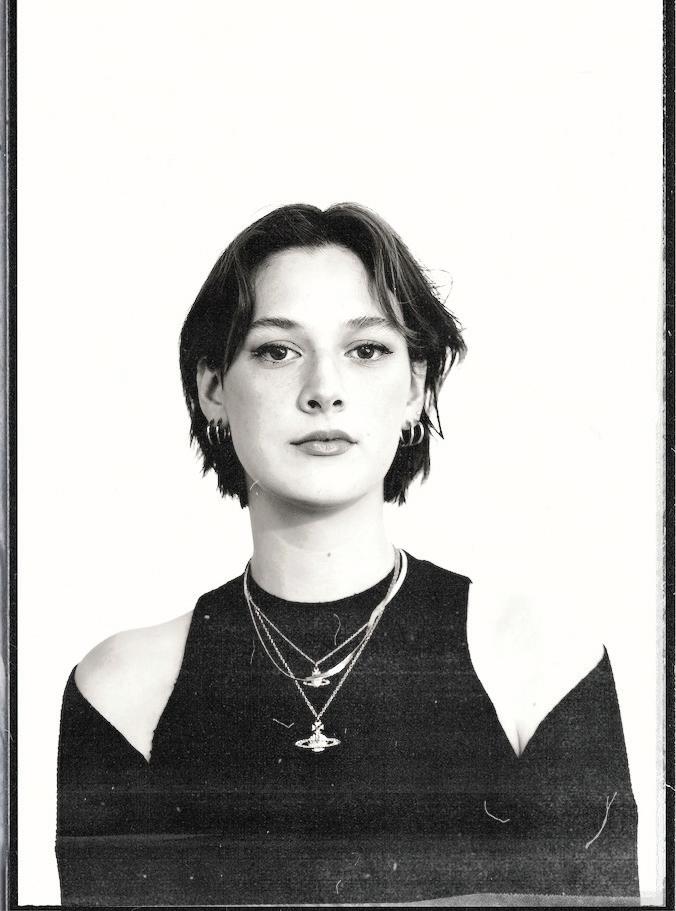

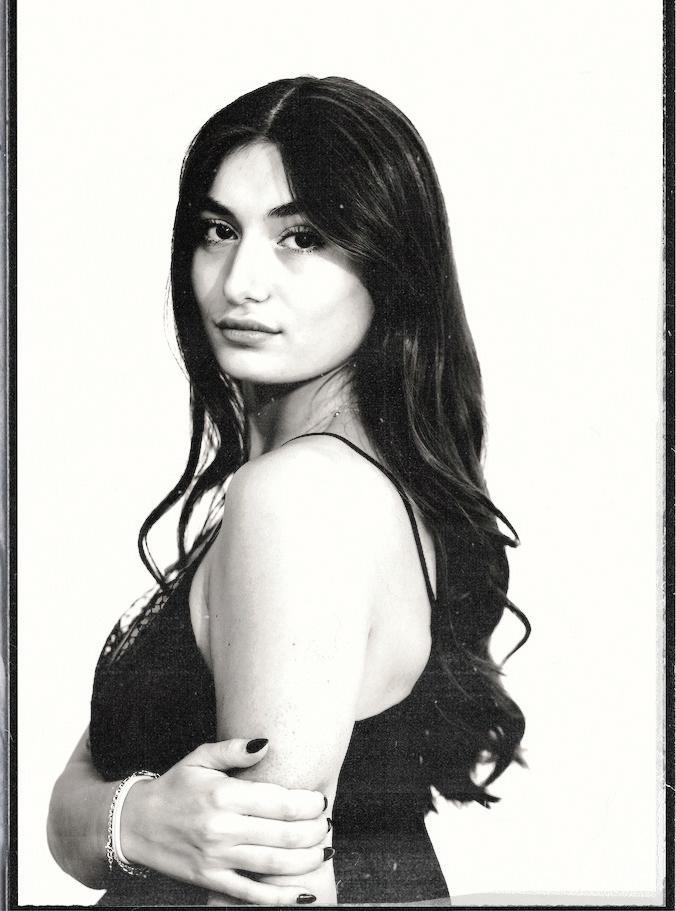
William Khabbaz
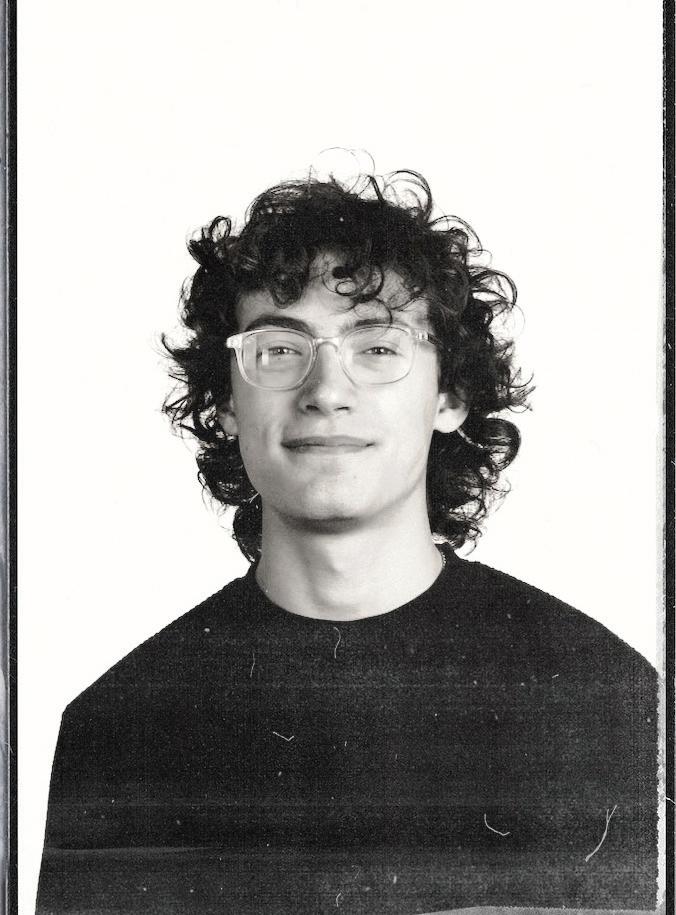

Josh Lee


Jack McCarty
Victoria Radis
Kaiya Vicioso

Anish Vasudevan
DESIGN
Andrew Le Chloe Mcollugh Mary Gretsky
FASHION
Caroline Cahill Livvy Doe Janessa Nelson
Mehne
Li
Saad
SOCIAL MEDIA Nikki Smith Ella Rivera Sam Hrncir Olivia Pines Julia Paperny Peyton Post Filipa Alloul PHOTOGRAPHY Mia Gnazio MODELS Caroline Tangang Eric Ticse Audrey Valentine Weisburd Janessa Nelson JK Krystyniak Gavin Hanna Trevor Blum Plum Swyn Shaleigh Harrington Oliva Swaab Sam Ronan RJ Thomas Aidan Headrick Brunon Kaminski We are independent. The opinions expressed are not those of Syracuse University or the student body. ZIPPED MAGAZINE 03 EDITOR-IN-CHIEF Nell Schwartz CREATIVE DIRECTOR Dominic Brancoli EDITORIAL DIRECTOR Ava Leventhal ART DIRECTOR Mira Dandiker FASHION DIRECTOR Molly Scheuer & Jace Williams PR & MARKETING DIRECTOR Olivia Weeks SOCIAL MEDIA DIRECTOR JD Triolo PHOTOGRAPHY DIRECTOR Max Cohen
Caroline Tangang Tristan Lamson Jood Al Saleh Hannah Costa PUBLIC RELATIONS Kate
Brigette Fernandez Vivian
Olivia Jackson Nick Robbins Emily
Taylor Creel
Where do I go? What do I mean? Who do I love and who loves me? What is my purpose? What should I do? Who am I?
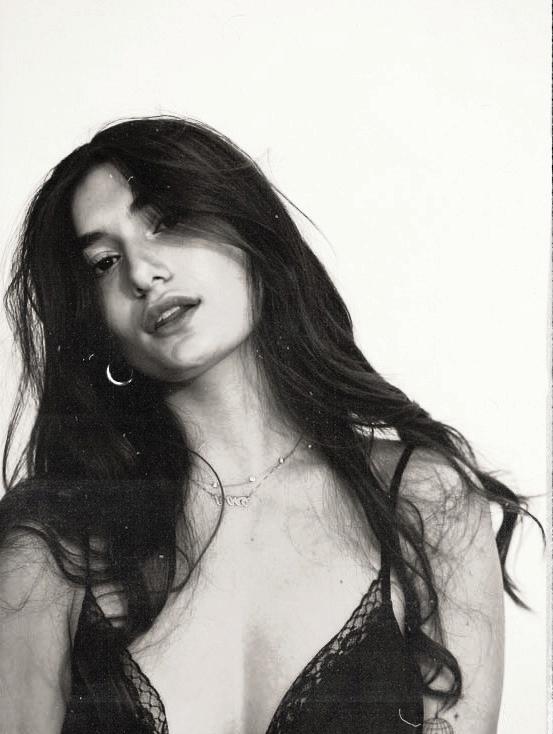
We all experience these feelings as we transcend our childhood and figure out our identities. These four years are fleeting. We are at a stage in our lives that is a chaotic symphony we all are forced to face.
I am 21. As I approach my final months at college, I am more conscious about the future and growing up than I ever was in my younger years. I find myself looking back at my life and being nostalgic for certain times while simultaneously growing and looking forward to what lies ahead. It’s time to face the future and transcend my adolescence. These moments for me look like love, leaning into discomfort, finding exceptional in the average, and looking for beauty all around me. I am developing from a self-centered way of thinking into a mature, altruistic mentation. I am figuring out who I am.
This issue of ZIPPED looks at the pivotal moments in our lives and finds meaning in them. We find beauty within the strange and unique people and places around us. We seek to understand our inner conflicts and turmoil. We grieve our losses and rebel to relieve the built-up tension within us. We explore what it feels like to grow up and feel lost and invisible, and most importantly, we learn that love is the most valuable resource in our world.
THE FALL 2022 ISSUE OF ZIPPED MAGAZINE IS A CACOPHONY OF THE EMOTIONS AND REALITIES WE ARE ALL DEALING WITH. This issue will explore the deep emotions and motivations that are associated with coming of age. We present to you: The Transcendence Edition. Working with this team of incredibly talented individuals has been my greatest honor. I couldn’t have dreamed of a better outcome. A massive thank you to every single creative on ZIPPED. Putting this magazine together with all of you has been the most special experience.

04 Letter from The Editor 06 For the one that got Away 11 Every Inch, Every Strand. 12 Happyguy Park 14 A Trip Down Memory Lane with Mickey Boardman 18 Aging 21 A Letter to my Younger Self 26 Standing Out to Fit in 32 The Fiber of Her Being 34 A Thank you to my Emo Phase 37 A Night in Brooklyn with The Hellp FALL 2022 04 ZIPPED MAGAZINE 05
our issue
sounds that inspired
By Sophie Cohen
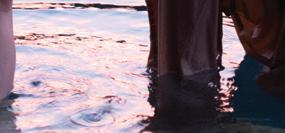
I’m thinking of a specific person, and it’s funny because I’ve been thinking about her a lot recently. Maybe she’s less of the one that got away and more of a situation with timing and my actions. We are no longer on speaking terms.


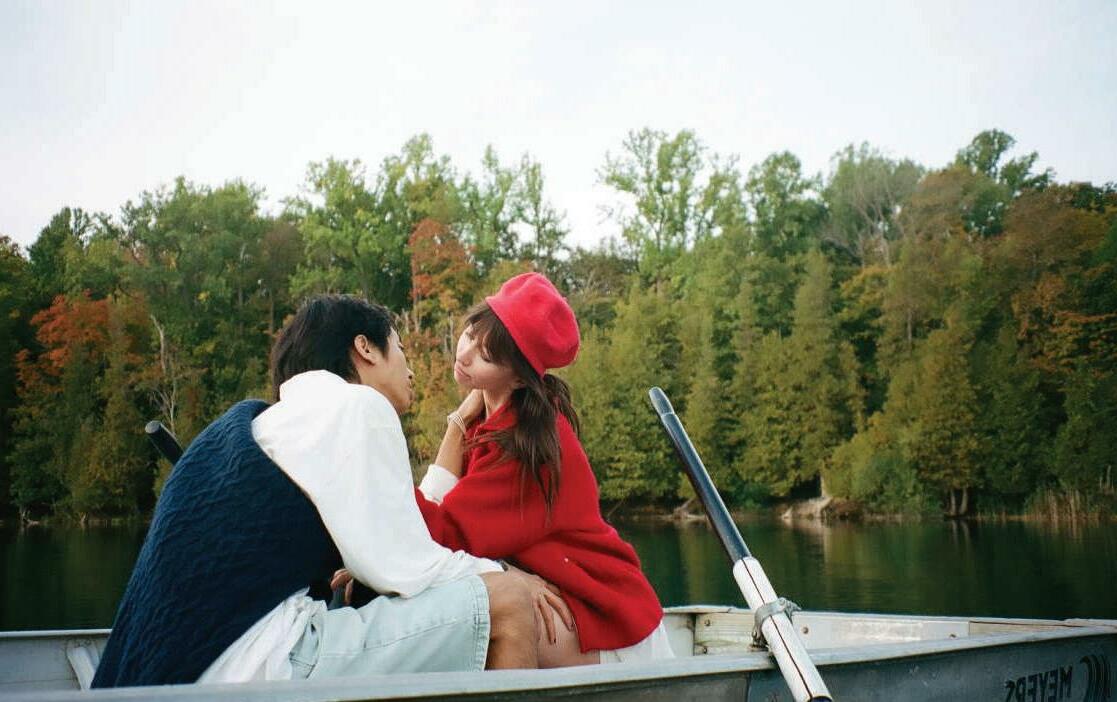
A lot of my actions at that age were me grasping at straws of love, trying to find different ways to receive affection, support, and validation as much as I could, all in an attempt to fill some void within my incomplete self.
For that, I would offer forgiveness to myself.

If she were to ever grant me the opportunity to engage with her again, I would first say I’m sorry. You did not deserve my
emptiness, my self-absorption. You were kind, you were loving in a way that I needed at that time and I didn’t appreciate it. I hope you’re well. You did not deserve to be cheated on. You did not deserve to be lied to. You did not deserve to be ignored. If I could ever get the chance to say I’m sorry in person or in a letter, I would welcome that opportunity, but I don’t think that individual is ready.




 Paris Mclean, 41, via Montclair, N.J.
Paris Mclean, 41, via Montclair, N.J.
In April 2022, I came out after only being with guys. Soon after, I met someone who had also recently come out, so it was perfect timing. I didn’t have any experience being with a girl, and neither did she. It was the first time I allowed myself to be attracted to another girl.
Our relationship was so different from the relationships I’ve had with guys, everything was moving much faster. I had never had that much affirmation from
someone in a romantic way, and I dated a boy for three fucking years!
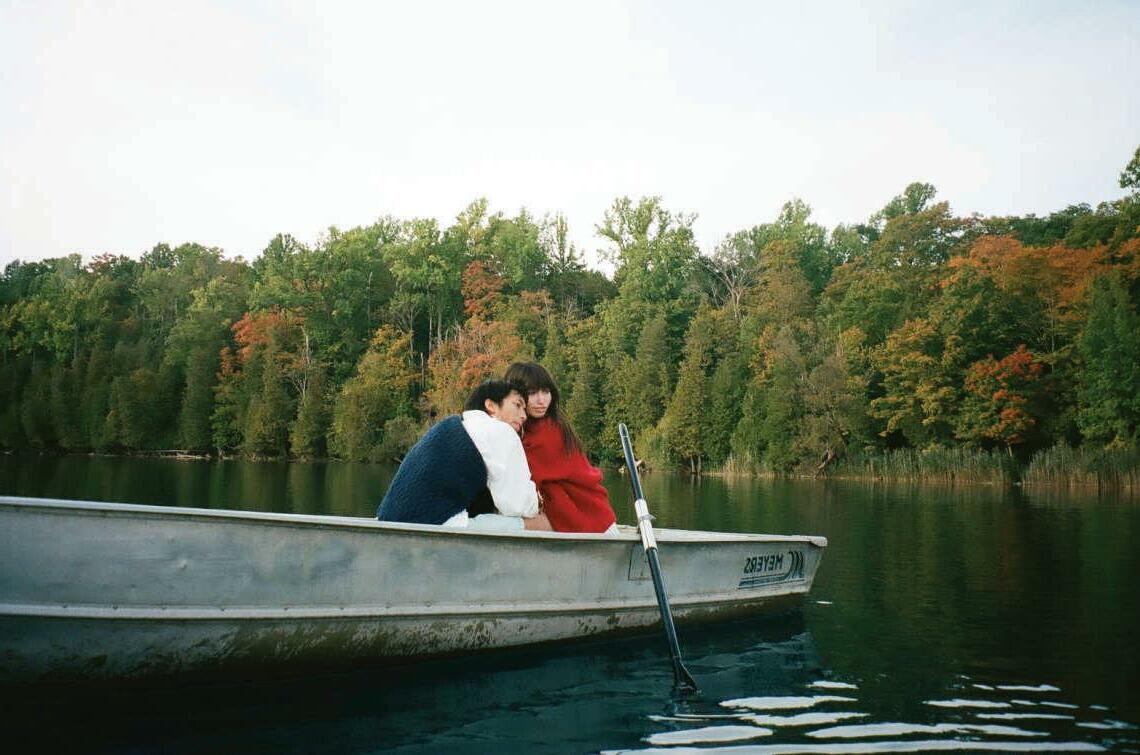
After a few weeks, she told me it was going way too fast for her. She said she really liked me and how much potential she saw for us in the future. She was going abroad in two months, and it felt like too much.
I was heartbroken. I had so many feelings for her, and there were so many emotions swirling around. I couldn’t decide if I was being friend-zoned or if I came on too strong. I feel like I ruined it for myself by not staying present when it was going so well.

I was always waiting for something to go wrong. I mourn the hope of being in a relationship with her. I still have a crush on her, maybe I always will.
I met a woman at the beginning of COVID, it was a six-month rocketship relationship. It wasn’t going to be a long-term thing based on some of the conversations we had. For a while, I felt like she was the one that got away.

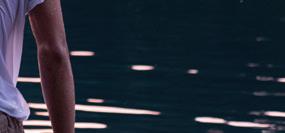
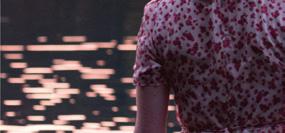
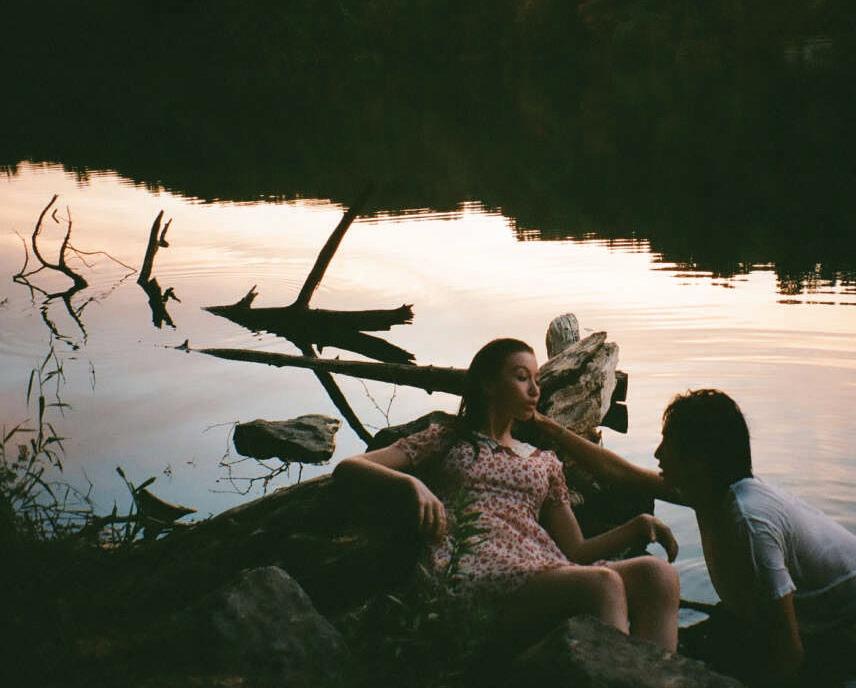
The relationship taught me that everyone is human and makes mistakes, myself included. The more distance I have from the relationship, I can see that I couldn’t be my authentic self around her. I’m glad it ended. I probably would have been walking on eggshells for years. Looking back, the relationship taught me that someone needs to be okay with me and all my human mistakes.
David Kassle, 49, via New Hope,

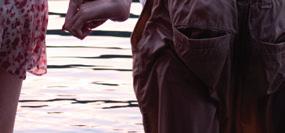

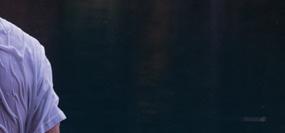
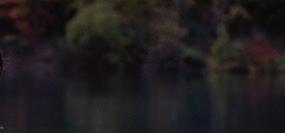

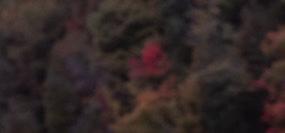
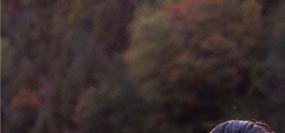


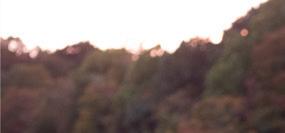
 P.A.
Tilly
P.A.
Tilly
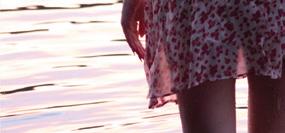

Mclean, 21, via Los Angeles, CA

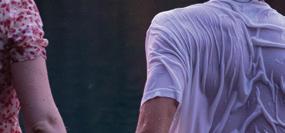
FALL 2022 06 ZIPPED MAGAZINE 08
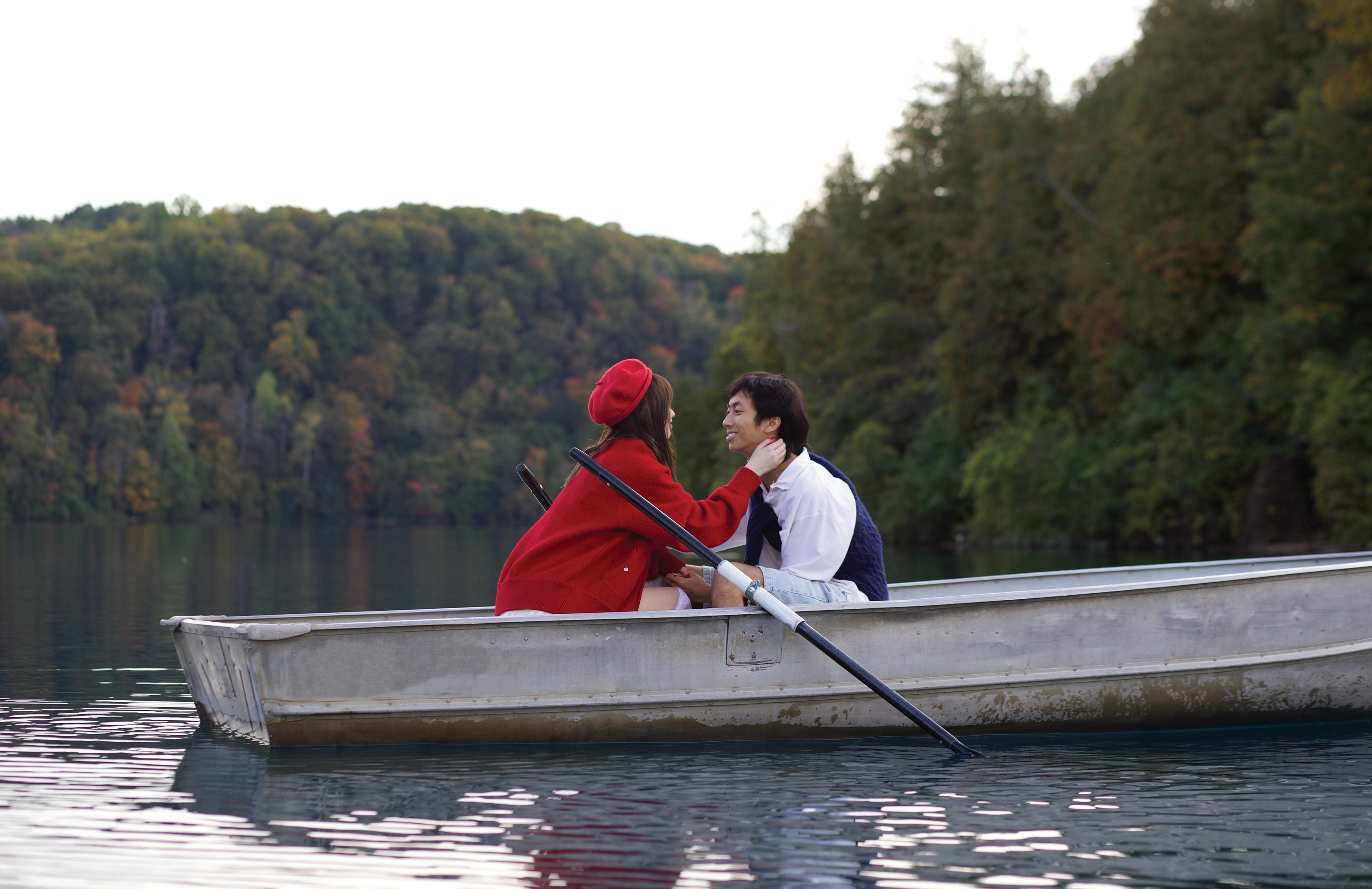
ZIPPED MAGAZINE 09 FALL 2022 08
We were both working on Martha’s Vineyard for the summer. I was 19 going into my sophomore year of college, he was 24 and just graduated. We were together 24/7, just sitting and talking for hours. I never had that with someone before. He taught me a lot about myself. We had plans to see each other during the fall.
I found out three months into the school year that he was with someone else. He’s still with her. Realizing that whatever we had wasn’t going to happen anymore was really hard. I didn’t even cry about it for a while, I couldn’t accept it.
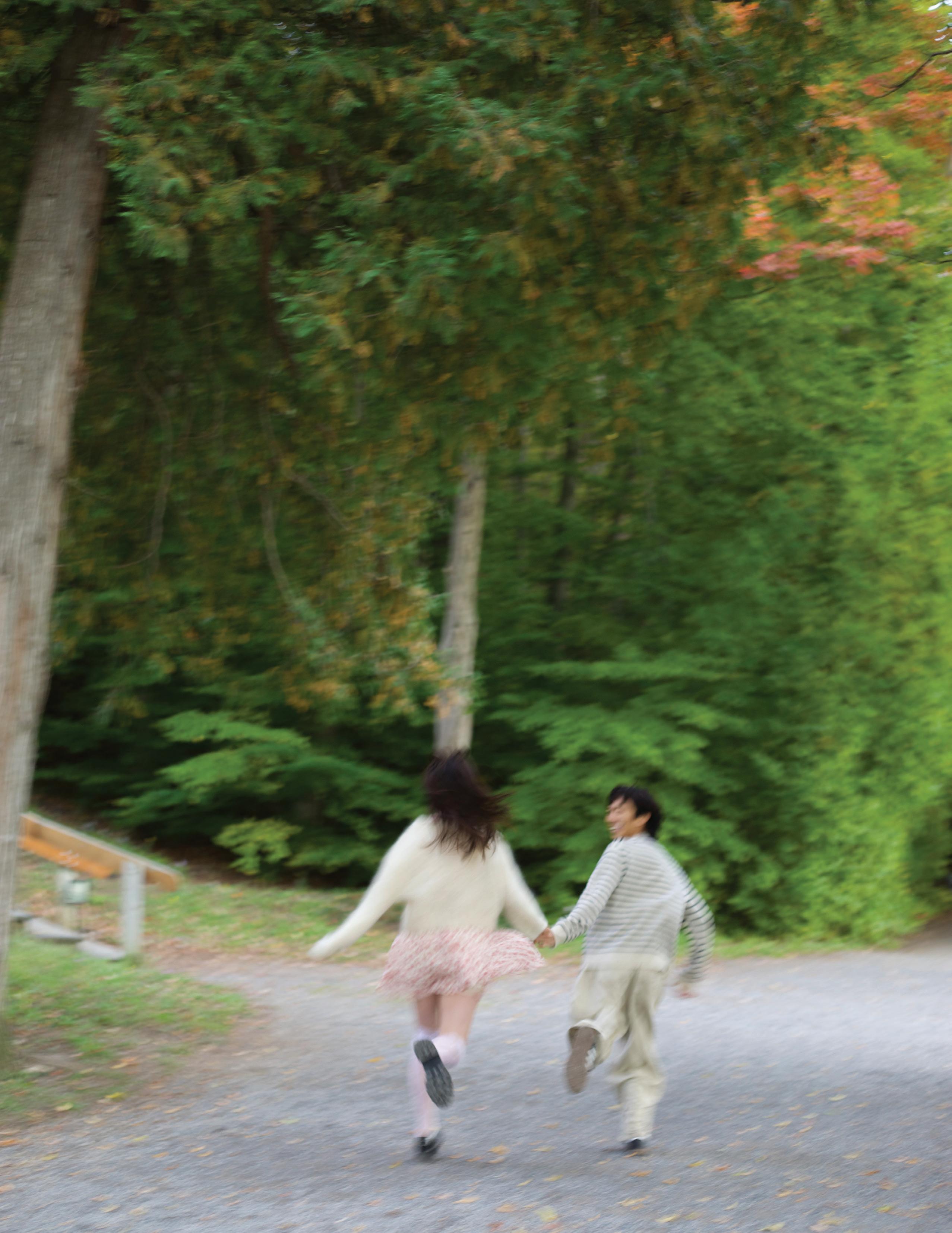
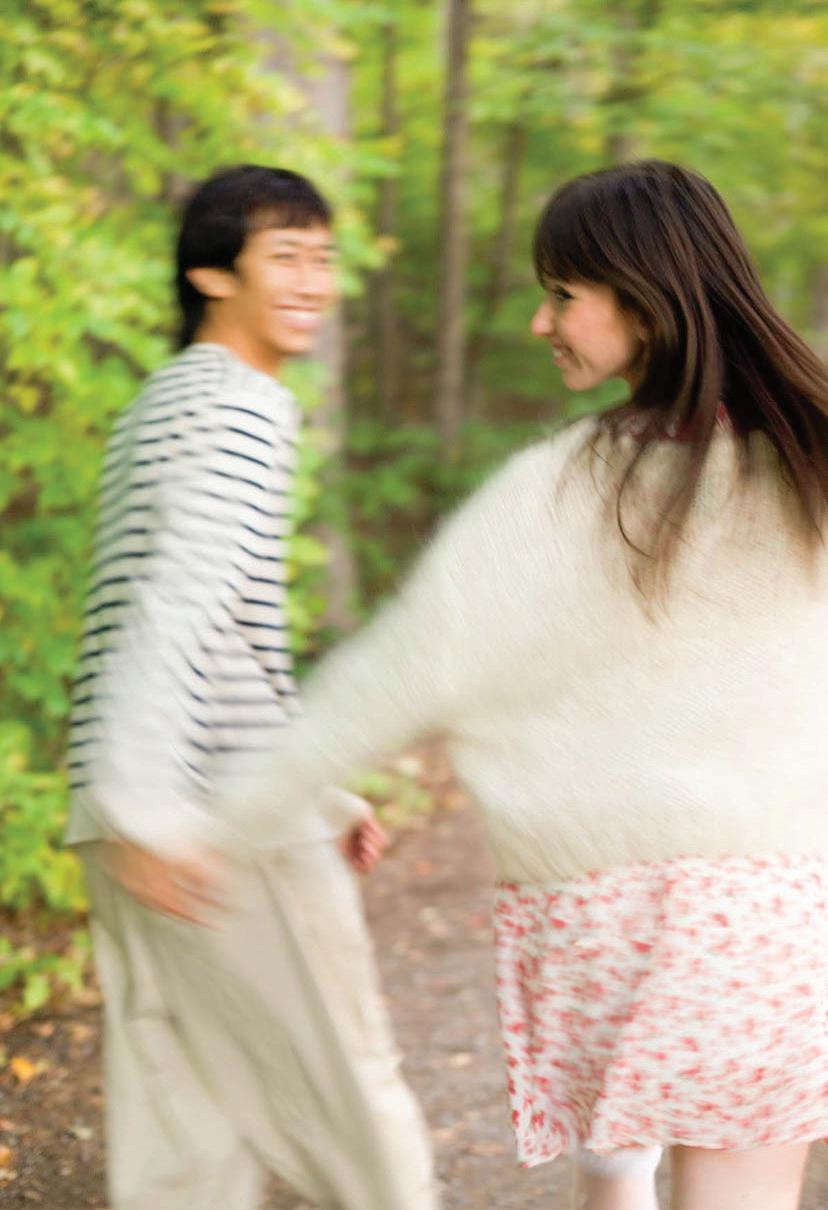
He’s just always gonna be the person that I compare everyone to—the blueprint. I don’t know if I’ll ever fully be over it.
I think I’ll always think about him. It’s been a year, and I’m no longer angry or sad. I just reflect on our time together. He will always be my what-if situation.
Evie Thomajan, 20, via Bethlehem, P.A.
The look on his eyes, the grasp of my face, My father’s last words to me will never go away. “I like your beard.” Every inch, every strand. It was his gift to me. The piece of my father I still have left.
The circular motion of the shaving brush, The slaps of aftershave to my face.
‘Baba taught me how to be manly, to stay brave. Sitting on the bathroom sink, peering at his reflection. I wanted a beard just like his. Every inch, every strand, I waited for it. Wishing that one day, I’ll have the brush in my hand Just like he did.

My beard is a symbol of Baba. A symbol of my culture. A symbol of myself. Beards are art.
Every inch, every strand, my beard had arrived. Hot towels, moisturizers, beard brushes, weekly trims fading the sides.
From the motherland of Lebanon, To the cheeks on my face, My beard is a reflection of my past life. Every inch, every strand, represents my people. From my father’s patience to my mother’s determination My beard is the strength of immigrant parents.
To follow the grain, or not? Now, that is the question. The razor gently glides across my skin The shortening of the hair, a new face waiting.


Every Inch, Every Strand.
By William Khabbaz
We met in 2016. A short while into being with this person, we invited somebody else we both liked into the relationship. Very quickly, the person we invited became toxic. They would talk about me behind my back to our mutual partner and ended up only being interested in them. This was the first time anything like this had ever happened to me.
The relationship taught me that some people do not want to be helped, and some people do not necessarily want to be saved. You have to let people make their own mistakes with or without you, and sometimes it’s completely out of your control.
In the end, it sucks. You either have to accept that you might be fighting for nothing or that your relationship is over.
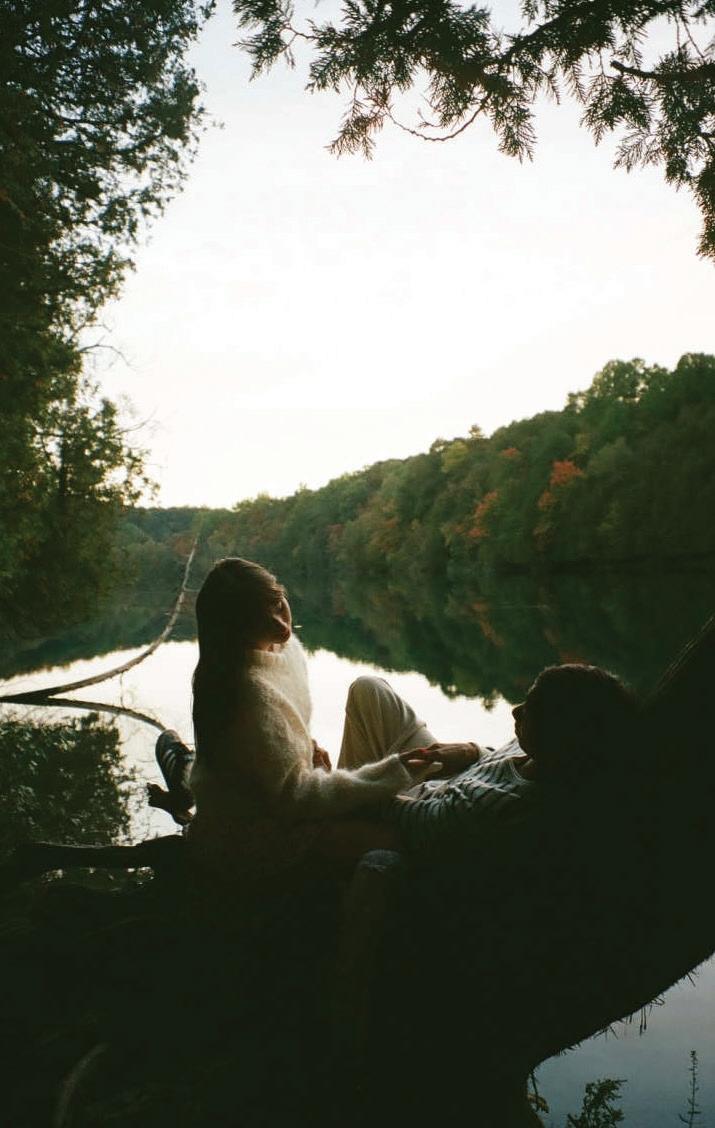
M. Thomas, 26, via Syracuse, N.Y.
My father’s beard turned gray, almost silver My future, my reflection. The way I envisioned it in years to come Just like wine, the beard deepens with time. Every inch, every strand, represents the path ahead The man I will soon become.
Moisturize, they say. Beard wash, oil, and butter The holy trinity.
William, Billy, Bill.
From his beard to his name. I am interconnected with him. His life, his destiny. My beard is just the simple way it shows.
I will forever keep the hairs on my face as a promise, Every inch, every strand. As a way to remember As a way to keep him in my heart. My beard is Baba. My beard is me.
FALL 2022 10 ZIPPED MAGAZINE 11
Happyguy Park
By Anish Vasudevan
10.
Jay was Superman. He took a deep breath, inhaled the distinct smell of tanbark and mapped the playground in his head, convinced he could see through his shut eyelids. He fidgeted his hands forward, grabbing the rusted railing in front of him before making his ascent up the rubber staircase to the top of the play structure.
A twig snapped. “Grounders!” Jay yelled, angling his head towards the sound. He kept his hands on the railing, his feet pounding on the black rubber stairs.
“Hand-leg,” he thought to himself. “Handleg.”
Jay reached the top of the jungle gym, his damp sweat replacing the smell of wood chips. He had to keep his eyes closed, but Jay knew where he was going. He knew Trey was in his normal hiding spot, hanging off the rock climbing structure with his back parallel to the floor.
“Gotchu!” Jay exclaimed after he lurched forward. He opened his eyes to find his right hand latched onto Trey’s left forearm. Game over.
“Shit,” Trey yelled. “How did you know I was there?”
Jay didn’t answer, laughing as he walked straight to the slide and launched himself down the beaten plastic. He got on his dew-soaked bike and raced Trey to the northwest exit of the park, leaving a watery trail on the pavement.
“Want to go see the big houses?” Trey asked. Jay nodded, turning left onto Happyguy Avenue. They raced down Stevens Creek Boulevard, turning left again down Cardinal Street to reach the cul-de-sac at the end of the neighborhood.
“This is it,” Jay said, making eye contact with the smiling, wrinkly lady plastered on the “FOR SALE” sign. He picked out the piece of paper from a transparent box with all the information about the $1.3 million house, trying to envision 3,000 square feet in his head. Where would he put a pool?
17.
There was a Mexican Coke in his hand.
Jay wasn’t familiar with the taste of Bud Light back then. He anxiously bounced his toes up and down on the pavement and tilted his head to see the rock climbing structure behind him. His eyes shifted to the oddly-shaped cloud above him. It looked like a polar bear.
Celeste was in front of him, her left side leaning against Jay’s 2006 Honda Accord. She gave Jay the same concerned stare he had seen days earlier when the red lights from the stop-and-go traffic reflected onto her face. Her glare pierced his eyes.
Jay and Celeste talked, but it was clear this was the last time they would see each other. This day had to come eventually, but it was earlier than expected. In a few months, they’d be on opposite sides of the country, both uncomfortable in the next chapter of their lives.
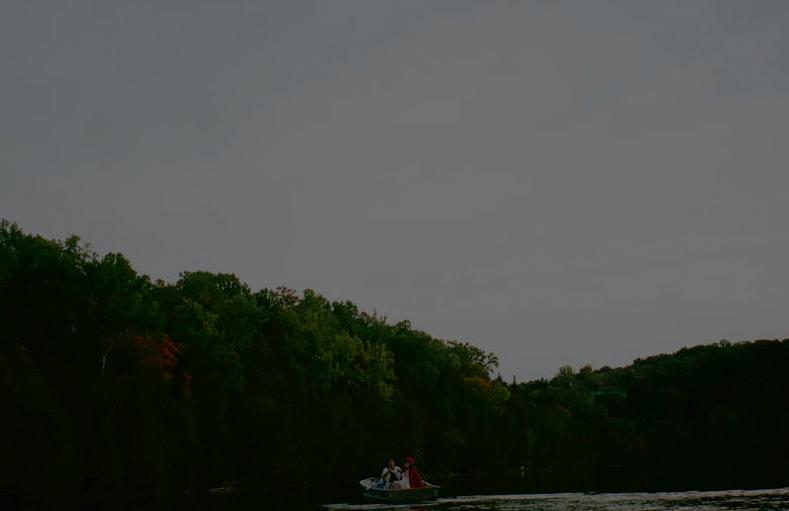
“I’m sorry,” Celeste said.
“It’s okay,” Jay responded.
Jay couldn’t contain his tears. He had planned his entire future around her. Celeste was composed. She was sad, maybe, but it didn’t show.
Maintaining eye contact, Celeste walked closer to Jay. She opened her arms, and he reluctantly put his arms around her back, placing his chin on top of her head like he always did. If he knew what he knew now, he would have embraced her much longer.
Jay watched her leave, put down the Coke bottle, and rested his hands on the scorching concrete. Two years earlier, Jay face-planted into the black tar of the parking lot after the front tire of his bike fell off. He felt the scar the accident left on his forehead and stared at that spot where it happened. The tiny white specks on the tar looked like stars in the clear night sky.
14.
The sleepover had turned into a sleepless night. At 6:30 a.m., Jay tip-toed from the kitchen into his bedroom, where Alex, Tyler, and Owen were all sitting on the worn-out gray carpet, screaming at the close NBA Live 09 Wii game they were playing — Owen was trailing Alex by two.
“Order up,” Jay whispered, holding a half-eaten ice cream cake. Jay sat down on the striped sheets, handing out paper plates. They ate in silence, randomly chuckling while the sugar worked its way into their bloodstreams. The boys left Jay’s room, and the apartment, in single file, trying not to make too much noise on the creaky hardwood floor.
They raced down the stairs and headed to the park. Jay dragged his feet on the wet grass around the circular basketball court. The green concrete complemented the November trees. Jay liked it like this; the brisk wind making his hands colder and colder.
Music blasted from someone’s phone, and each of them took turns adding songs to the queue. Alex, Tyler, and Owen took turns shooting. Jay rebounded, as always.
Jay kept the ball after Owen missed his shot from midrange. He dribbled it between his legs, swung it around his back, and positioned it in his left hand. He brought the ball up from the left side of the 3-point line, placing his right hand on the side of the ball for support, and heaved it at the rim. Swish.
The walk back to Jay’s apartment wasn’t long. They jogged down the middle of the road, chucking poisonous red berries at each other’s faces. Jay turned left on Colony Hills Lane, and the rest followed behind him. Trey’s house came first, then Owen’s.
Jay and Tyler were the only ones left. They walked into Lawrence Apartments and got into the elevator. Jay struggled to keep his eyes open as they reached Tyler’s floor.
“Was it worth it?” Tyler asked, yawning. “Yeah,” Jay replied.
“Happy birthday,” Tyler said.
18.
The world had stopped spinning hours earlier, and he had returned to his regular dimension with Trey beside him. Jay walked up to the twin redwood trees between the playground and basketball court, touched his hand against the brittle bark, and took a deep breath. It all came back to him.
He remembered what it felt like to let go at the top of the swing, bring his arms out to his side and bend his knees to perfectly land the dismount.
He remembered the passing of an Arizona iced tea, Trolli Gummy worms, and other goodies to each of his friends in between basketball games.
He remembered crouching behind an oak tree near the benches in the middle of the field, jumping out with a cake in his hands to surprise his sister for her 15th birthday.
He remembered the laughs from his friends when he accidentally smacked the entirety of his forehead onto the “PARK CLOSES AT SUNSET” sign.
He remembered the brawl for the leftover Mcdonald’s fries scattered on the bench behind the bathrooms. He remembered looking up at the stars while taking a piss in the dog park.
He remembered the adrenaline, the heartbreak.
“How was it,” Trey asked.
Jay looked around. He saw the big slide, the red box on the backboard, the patch of dirt in the middle of the big field. The park looked exactly the same. “I did what I was supposed to,” Jay replied.
FALL 2022 12
ZIPPED MAGAZINE 13
By Nell Schwartz
Mickey Boardman, also known affectionately as Mr. Mickey, is an advice columnist and the Editorial Director of Paper Magazine. A Libra, a social media connoisseur, a front-row regular at any fashion event, and a self-proclaimed royal history buff, Mr. Mickey oozes superstar energy.
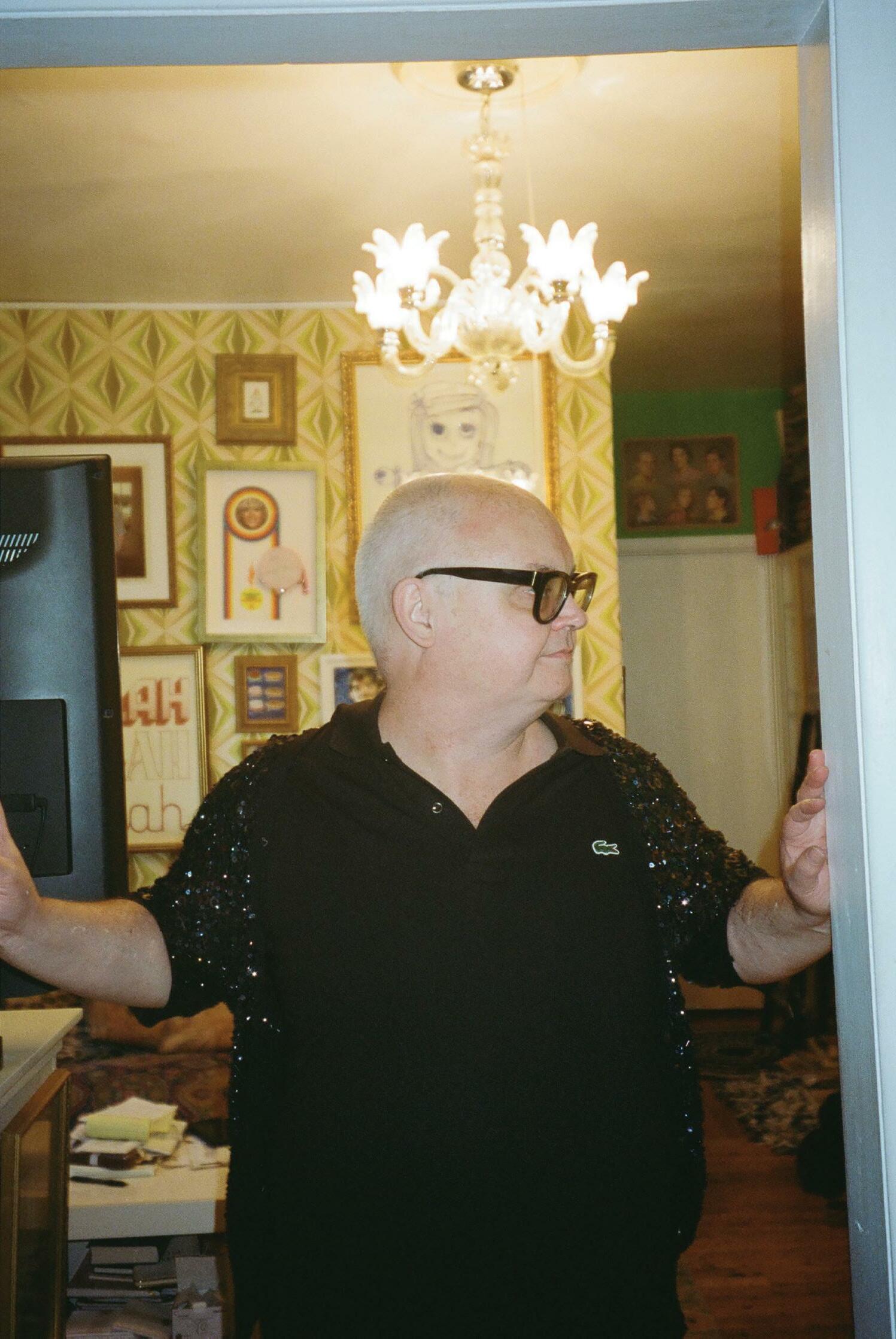
Known for his shimmering, sequined, quirky patterned clothes, and thick-rimmed glasses, he is pretty hard to miss. It’s no wonder he is one of fashion’s most respected elites; his kind and approachable demeanor, mixed with a laugh-out-loud type of humor and one-of-a-kind style, makes everyone fall in love with him.
While Boardman has always been notable in the fashion world, his name gained popularity in 2014, when he directed the notorious Paper cover with Kim Kardashian shot by Jean-Paul Goude that practically broke the internet. The cover showed Kardashian partially naked, shimmering with baby oil all over her body. It is undoubtedly one of the most talked about covers in the fashion world and will forever be regarded as iconic. Boardman has also worked with a plethora of other artists and celebrities and helped direct some of Paper’s most recognizable covers with a long line of A-Listers, including Kesha, Drake, Courtney Love, Miley Cyrus, Kylie Jenner, and Mariah Carey.
Born and raised in Hanover Park, Chicago, Boardman graduated from Purdue University with a degree in Spanish before attending Parsons at the New School for Design, where he was first introduced to Paper Magazine as an intern and has been with the magazine ever since. I was lucky enough to secure lunch with him on a crisp fall weekend this past October in NYC, and we chatted about his
successful career and reflected on how he has grown on an individual level and remained true to himself throughout the years.
Nell: What do you think young Mickey would think of you now?
Mickey: I think young Mickey would be shocked that he has a life he really enjoys, and he started imagining when he was young. I was born and raised in the suburbs of Chicago, and growing up didn’t know anyone whose parents had a creative job; my dad was a pharmacist. someone would ask me, “What do you want to be when you grow up?” I would say a doctor, a lawyer, or the Good Humor ice cream man. I only said doctor and lawyer because I knew grown-ups thought that was a good thing to say, and I said The Good Humor man because everybody was happy to see the ice cream man; in my neighborhood, when the ice cream came, everyone dropped everything and ran to the truck.
I didn’t have a role model who worked in TV, you know, I never saw a famous person. As I grew up, I had no idea what to do, but I was always addicted to magazines, but it never occurred to me, like, oh, you could work in a magazine, to me, that wasn’t even an option. When I was young, I had this weird sort of dichotomy that I was gay and very different than other kids. I was sort of shunned on one level, but my brother was a sports star and super popular, so
FALL 2022 14
ZIPPED MAGAZINE 15
I would hang out with him and his friends, who were all the cool popular kids. Plus, being gay, I was friends with all the cheerleaders, so I had this weird sort of best and worst of both worlds, which was interesting.
I moved to New York to go to Parsons to study fashion design, thinking, I’m gay, I love magazines, I love fashion, I should study fashion. I should not have studied fashion. Looking back now, it was great that I studied fashion design at Parsons, and it’s great that I failed a class my senior year and never finished because I was an intern at Paper at the time through meeting someone in New York.
N: What is the best advice you could give to young creatives?
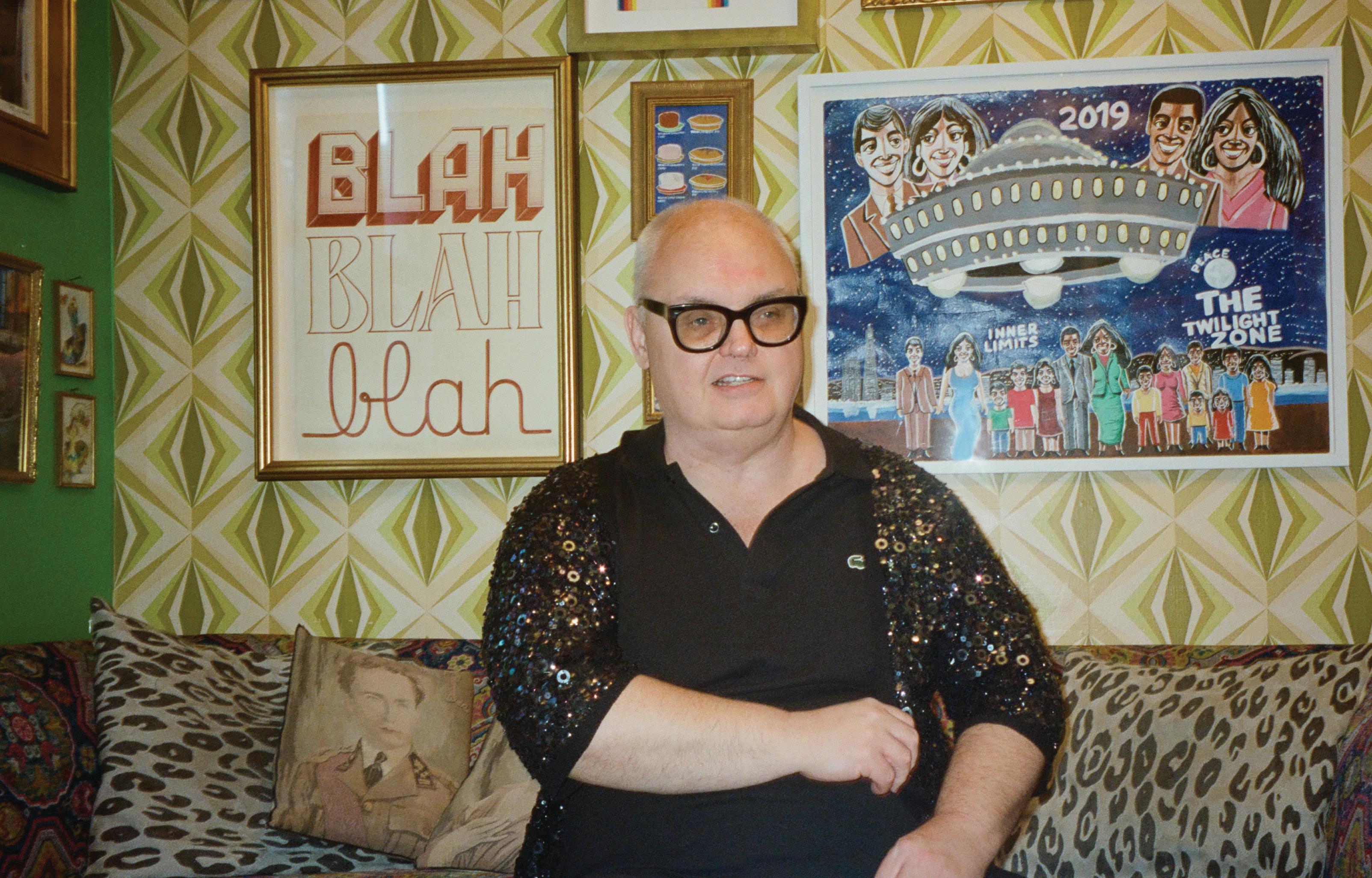
M: I tell people the first step to making your dreams come true is knowing what your dreams are and really visualizing them. I’m a
big believer in the power of positive visualization and thinking ‘where do you want to be?’ I never really thought about what I wanted in my life career-wise, but I did visualize a lifestyle. It’s embarrassing to say now, but when I looked at Ralph Lauren ads at the time, which I thought were so glamorous, I imagined myself driving in a convertible somewhere glamorous in the country, living in a historic home, being surrounded by these kinds of ideas of what I thought was a fabulous lifestyle. And I did that. So I really feel like I’m a huge success on that level. So I think a lot of people don’t stop and think about ‘where do you really want to be?’
You learn more from failure than from success. Something very hard to learn, and I still am trying to learn, is almost everything in life seems so personal, but it’s not personal. I’ve always felt like I don’t know how people can be
actors or models because I would take that so personally, like when you’re rejected all day long; how can you not take that personally? I realized that 99% of the rejections that we get are not about us or the other person, it’s just things that were not meant to be at that time.
Success is what I got at Paper I was like, these are my people, these people get me, these people appreciate my strengths, and they are fine with my weaknesses.
I can grow and be who I am here. So many people feel like they have to be something they’re not. They think, ‘oh, to be a high-powered lawyer, I have to be a cold bitch, or I have to dress this way, or I have to do certain things.’ You don’t really have to do anything. You just have to be good at your job and work hard, and you can still be yourself.
N: What has your journey to selflove and acceptance looked like?
M: I’ve had lots of ups and downs. I’m very happy generally now. I was hospitalized as a teen because I tried to commit suicide. I think surviving those kinds of things makes me see what’s a crisis and what’s not a crisis. I try to be super open on social media, and I’ve shared about having Parkinson’s disease, which I was diagnosed with this year. I’ve shared about my weight issues, I share about sobriety. It’s very hard to talk about suicide, I don’t know what to say sometimes, but I’m working on it.
My gayness was a big part of my issue in learning to accept myself. When I was young, I thought the worst things that ever happened to me were being gay and being fat. I wasn’t even fat. I was, like, five or ten pounds overweight or something, but I thought my life was ruined. But you realize that life goes on and that we all have issues, we all need help. That cliché maybe is true that it does get better, but in some ways, it doesn’t. It’s always going to be hard, and they’re always struggles in life, but if you can focus on the good parts of life as I’ve had, you will love life and yourself.
It wasn’t until I came to New York that I fully felt like I could be myself. On some level, I was always myself, but I wasn’t openly gay until I moved to New York. When I was 20 or 21, I still had to come out to my family. When I did, how did they take it? Not great. They’re fabulous now, but at first, they were not great. The times I lived in were not accepting. I look now, and I see kids, and they’re bisexual, or they’re trans and nonbinary, and in my day, in my high school of 2,000 people, one kid maybe was rumored to be bisexual, and his whole life was ruined. It was not the thing. When I first came to New York, I would carry a lady’s purse, which I still do. And people were horrified and shocked, now, every man has a purse, like straight men, gay men, trans men, everybody, which I think is completely great. So I think there’s still some things that need improvement in society, but on that level, I think things are much better in terms of people at least having role models who are being themselves nowadays.
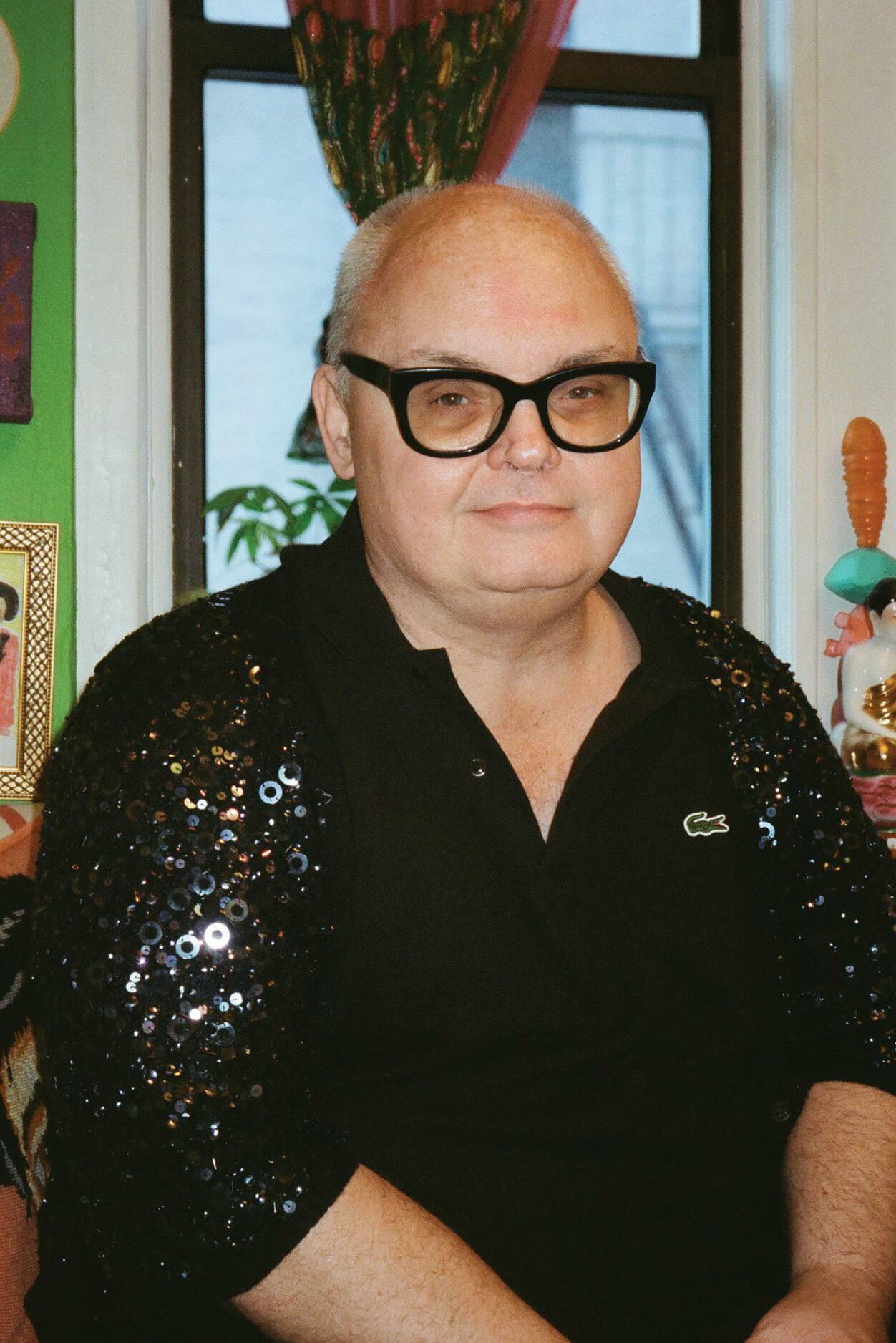
N: My last question for you is about working in fashion. People say it’s a soul-sucking industry, but you seem happy, healthy, and in love with your career. How have you managed?
M: You know, it’s funny because I say I’m such a real fashion person, I’m a real magazine person. I love
those things completely. The funny thing is when you are a fat person, fashion is telling you you’re bad. If you’re fat, everything from the size of the seats at the fashion show to the clothes you can buy. I mean, there are so many things that are backward about fashion. I love it, but I recognize it for what it is. It’s like being in love with a man who treats you like shit. In a way, you can’t help yourself. There are more websites and brands that work with designers to make bigger sizes and things like that, but it’s also deeply embedded in our culture to look down on fat people, or that fashion is elitist. In many ways, it is. But I’m more interested in the sort of people who put together an amazing outfit, maybe it’s their first time at a fashion show, and they are so excited, rather than the person at a show in head-to-toe borrowed clothing that they didn’t creatively put together. I remain myself through my work, and that is how I have managed.
FALL 2022 16 ZIPPED MAGAZINE 17
By Ava Leventhal
I mentally run through the botox appointment I plan on booking when I’m 25 because I’m assuming that is when I will see my first wrinkles.
Blowing out the candles on my birthday was sacred to me, until I realized I was aging out of wishing to grow up.
Days spent in bed are ones I will never reconsider, and I will yearn for the days that I was untethered to time.
“Beautiful for your age.”
I have visited the cemetery where my grandma pointed and said “hey that’s my spot,” in the midst of other relatives, ones who I can never remember how I am related to.
The satisfying feeling of pulling out my gray hairs, ones that my mom attributes to stress. My 18-yearold brother hasn’t started balding yet, which I guess is a good sign.
My LinkedIn emails have started to go to my spam because I cannot bear to see how “excited I am to announce that I have joined the big *insert impressive company* team!”
I hope to exist in every moment forever, but all I see are scattered stacks of pictures in my brain that are trying to find the memory that matches it.
Does being uninhibited ever lose its allure?

One day I will be the one staring down the crowded subway aisle waiting for someone to offer me their seat because I will look too frail to stand.
The best sleepovers are the ones where I wake up and think I’m at home, the comfort that friendship provides is a security blanket, even in my slumber.
I’m waiting for my goals to tell me when they will be realistic enough for me to reach, but none of them have told me when I will know.
I dread the idea that I will give all of my love to people who will become strangers, until one doesn’t, or I decide that I can love someone enough to never get bored of them.
Self-correcting my imperfect posture is something that I should do regularly, but I cannot comprehend the day when I wish that I sat up straight in class and did more stretching.
My entire life, I have never wanted kids, but now that I’m 20, everyone rolls their eyes and chuckles.
Getting ready to go out on Thursday nights has become a sacred ritual of knowing that homework should be getting done, a rebellion against the other weekdays. One day Thursday will just be another Wednesday.
I try to watch myself from the outside, knowing no one knows me better than I know myself, but no one really knows themselves.
I think I can make time slow down if I stare at the clock long enough.
FALL 2022 18
ZIPPED MAGAZINE 19
By Josh Lee

Dear 18-year-old Josh,
From our small town in the middle of New Jersey to Syracuse University, our lives have changed over the past four years. Knowing you, you’re probably sitting at home staring at your 2012 Macbook Air, wondering, “What am I going to do with my life?”
Buddy, I’m sorry to tell you this, but that question doesn’t really get answered in these next four years. I can tell you that you get one step closer to becoming the person you want to be: someone who understands his emotions better, someone who is more confident in himself, someone who tries his best in all aspects of his life.
You’re doing great, but here are some things I have learned over these past four years, just to give you a head start.
FALL 2022 20
ZIPPED MAGAZINE 21
1. Be confident in yourself.
I know you get nervous around groups of people, especially when you don’t know them. Social anxiety is real. Just remember that everyone else in that room is probably feeling something similar, or they are too focused on themselves to care about what you’re doing.
It’s not just about being socially confident but being confident in your work. Trust your vision. Over the past few years, photography has become more than a passion. You’re going to get an opportunity soon to work with a photo company, Fujifilm, to create a project, and it’s going to rekindle your love for photography. They will show you that your vision is unique and that your idea for the portrait series of creators is worth doing. Stay true to yourself through the course of that project. Simplicity in our photography is what we love, and stick to that if you like it. Photos don’t always have to be intricate to tell a story, so continue shooting with a lot of white space. Don’t let other people tell you otherwise.
3. Grab those opportunities.
In 2020, you’re going to be at the lowest point of your life. You’re not going to want to do anything for a long time. Everything will seem harder than it is. But during that time, we get an opportunity to carry out a portrait project that we’ve wanted to do for a long time. This opportunity will only come if you take that first step to apply for that project with Fujifilm. Only then will we receive the equipment and resources to do this project. Through this project, man, you’re going to meet so many dope creatives; through them, more doors will be opened. You’re going to realize that taking this opportunity will show you the beauty of risk-taking and being adventurous. And afterward, you’ll find opportunities like this for yourself that will even further help you grow. Also, I know you like to overthink everything, but you’ll never know if an opportunity is right for you unless you try it. Just say yes.
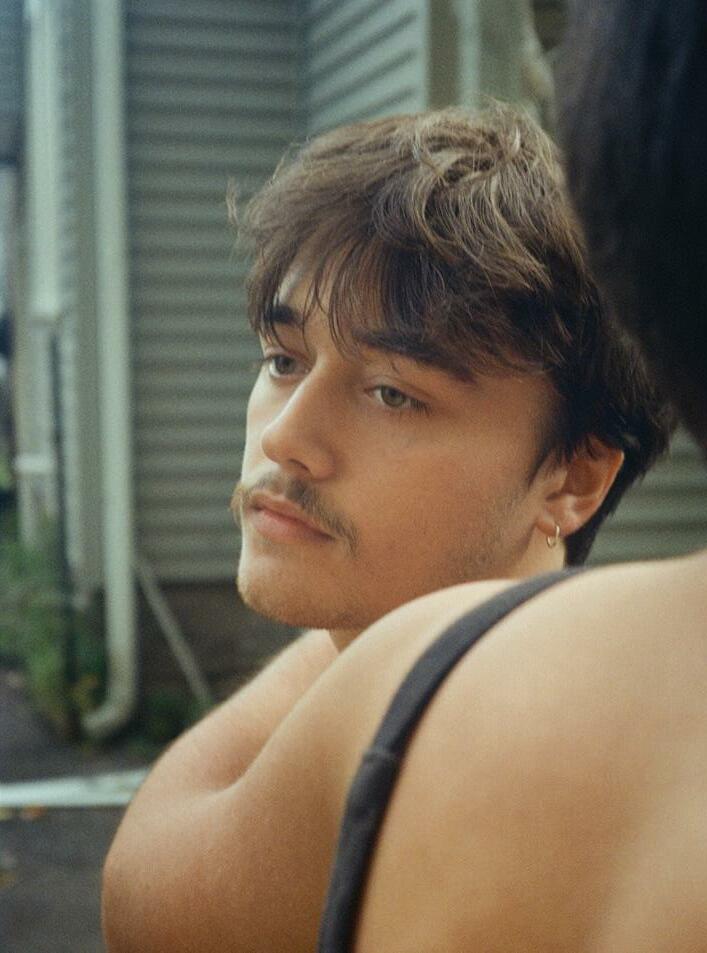
4. But still, it’s okay to say no sometimes.
Soon, life will get a lot busier, and school isn’t going to be the most hectic part of your schedule. Saying yes to opportunities is good, but it’s important to understand when you’re feeling burnt out. This past year we took on two jobs to save up some money, thinking we could do it. Boy, were we wrong. I got sick twice in two weeks, which you know never happens. It’s okay to prioritize the things that will really push you to become a better and more knowledgeable person.
5. Everything happens for a reason.
2. It’s not that deep, homie.
I know that high school tests your social skills, and as an over-thinker, we know the awkward moments with the “popular” kids take a hit on your confidence. I know that speaking up in your classes seems harder than the actual assignments. Homie, it’s been four years, and none of that matters now. At some point, your social anxiety will be replaced with financial stress, and your fear of getting a bad grade will be replaced with the stress of finding a job and other things that are actually more important in life.
I don’t want to undermine any problems that you’re feeling as a high schooler because it’s valid, I get it. I was in your shoes and black NY baseball cap, too. But it’s never the end of the world. Just sit back and relax. You’ll find ways to cope with anxiety and social stress, like photography or running. Trust me that those ou tlets will help you become a healthier person. Stay calm. In the end, everything will work itself out.

You and I both know that Syracuse wasn’t our first choice, or our second, or our third. But here we are. That saying that we’ve always heard, “It’s what you make of your experience,” is actually true. I know it just sounds like a saying to reinforce that it is okay not to attend an Ivy League school, but Syracuse has been a place where we probably grow the most in our lives. We met lifelong homies. We studied in London. We started a blog and finally found our photography style. I’m the person I am right now because of everything that has happened for the past four years, and I’m grateful.
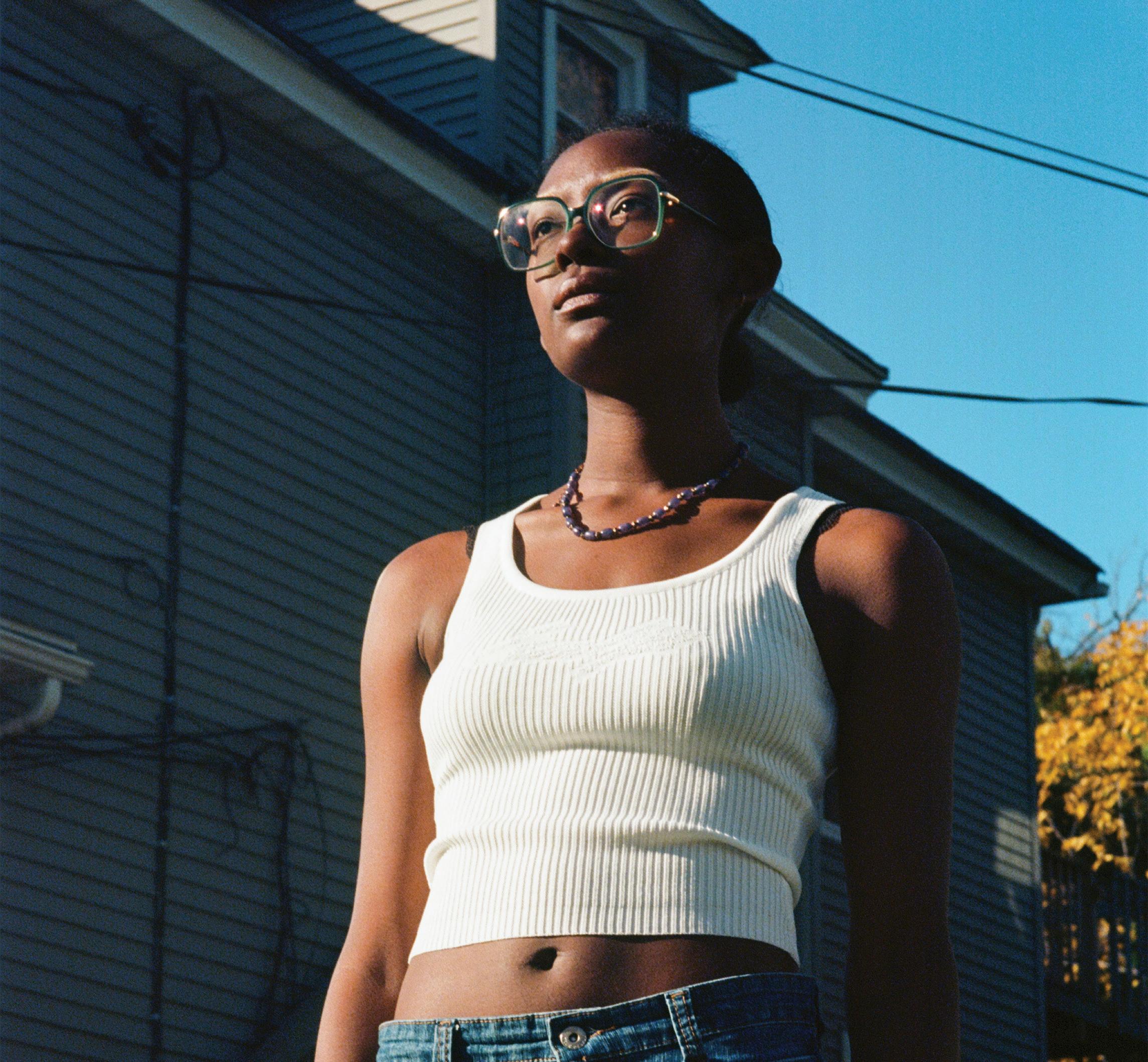
We grew as students. As creatives. As people. I’m not gonna lie and say that I’m the person we’ve always aspired to be, but we’re definitely one step closer. I guess with everything that has happened in the past four years, I couldn’t have asked for anything better. It’s been a hell of a ride, and I’m excited about what the next four have in store for us.
Life’s a movie. Actually, nah. Life’s a fever dream.
From 22-year-old Josh
FALL 2022 22 ZIPPED MAGAZINE 23
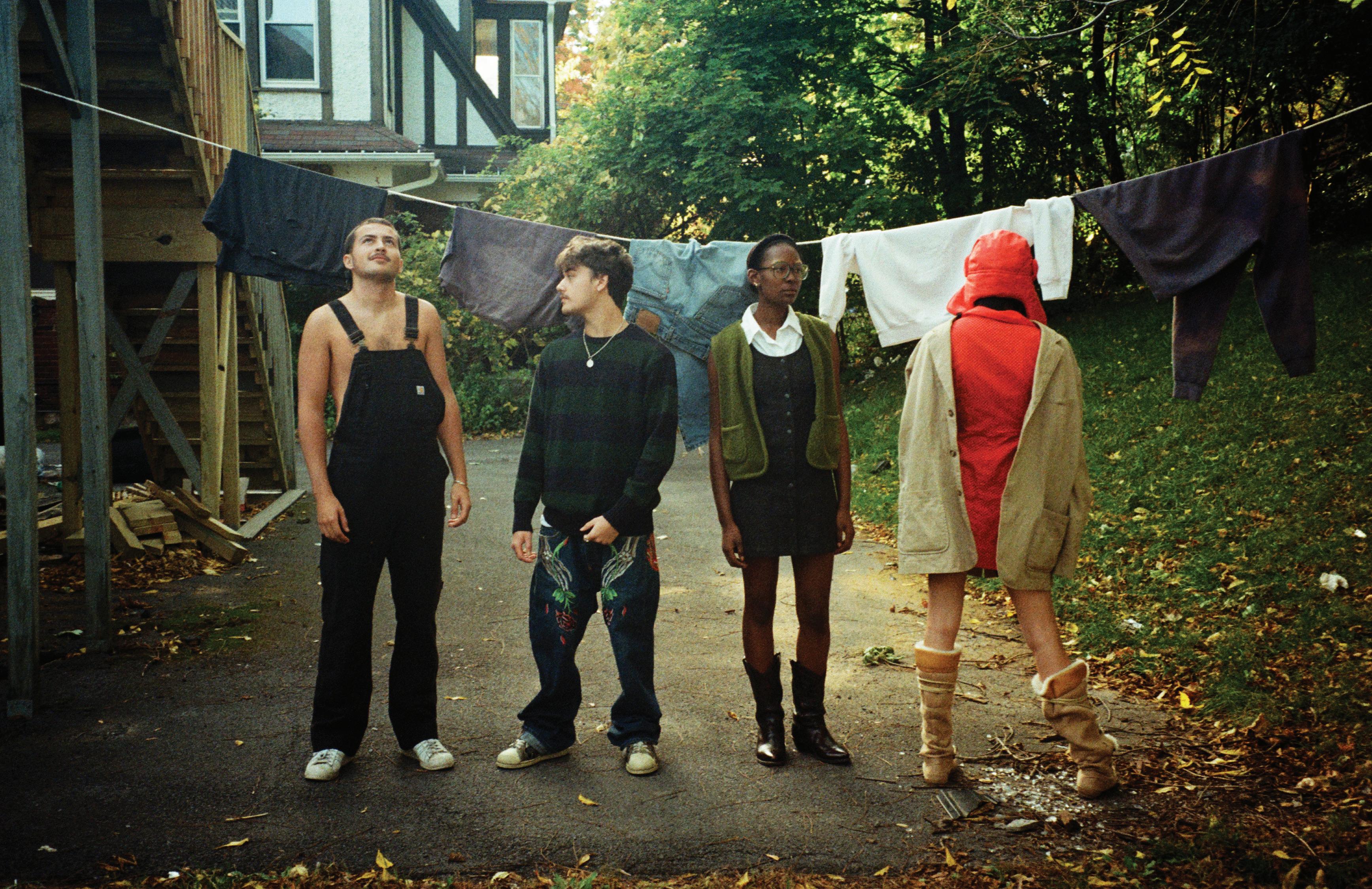
FALL 2022 24 ZIPPED MAGAZINE 25
By Victoria Radis
Growing up, I remember being told by various adults that I should be myself and that being myself would make me stand out, and I should want to stand out, whatever that means. I, along with many other people in Gen Z, learned to admire those who stray from the norm, those who publicly stand out and appear to be authentically themselves. Those people are the ones we are taught to be like, and they are supposed to inspire us to be different.
No one wants to be average anymore. Maybe there was never a time when anyone strived to be average, but with our reliance on social media, the idea of being average scares people. In a world
where we already feel obligated to keep our extended social circles updated with every vacation, every achievement, and even every Halloween costume, we feel pressure to stand out from everyone else. But really, what does “being just like everyone else” even entail when each of us has a unique identity without even trying?
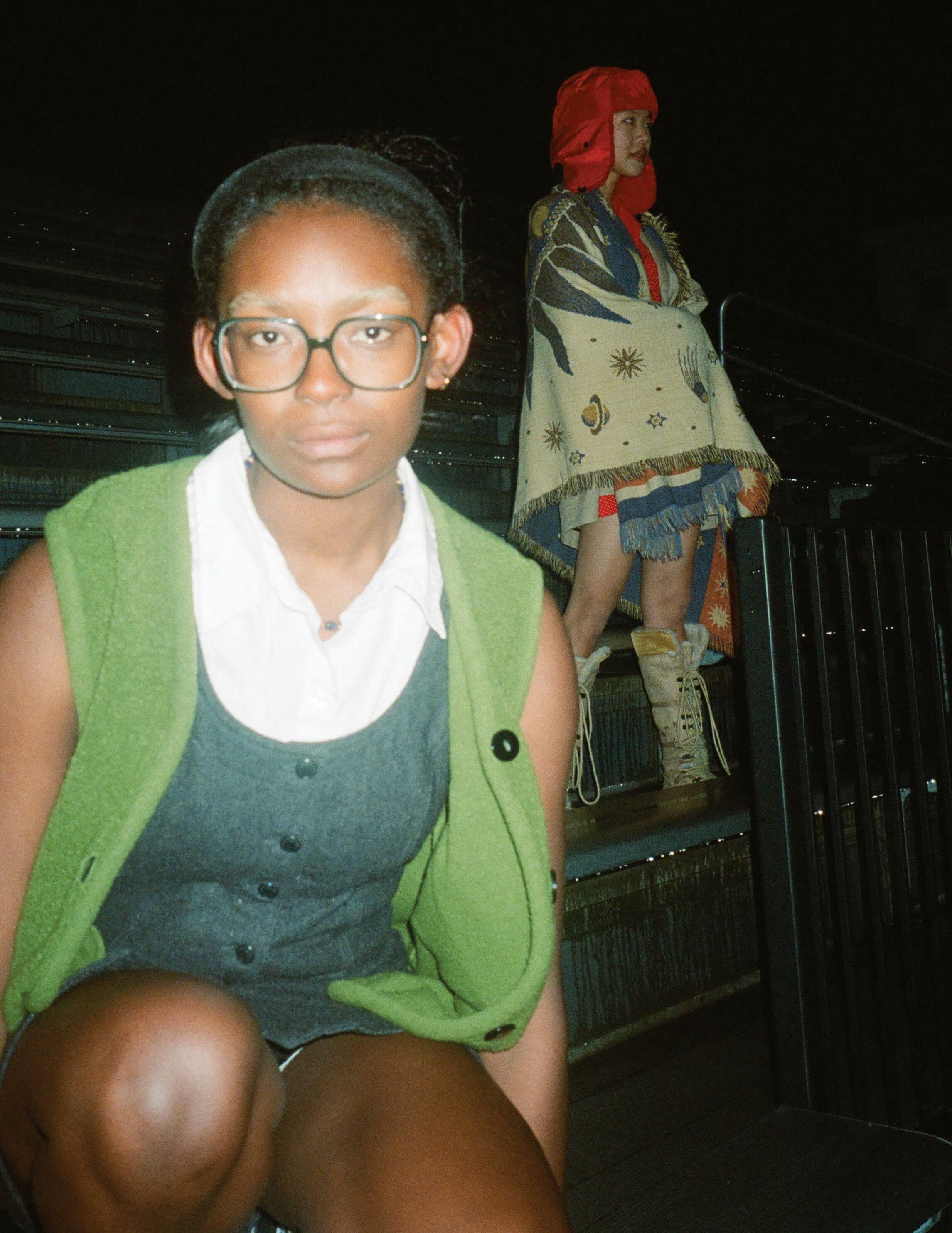
One of the first examples I can recall of extremity and of truly standing out is Lady Gaga, specifically when she wore the infamous meat dress to the MTV Music Video Awards in 2010. All of Lady Gaga’s outfits in the early 2000s have earned a spot in history, a cultural reset of some sort. Now, times have changed, but somehow we’re still
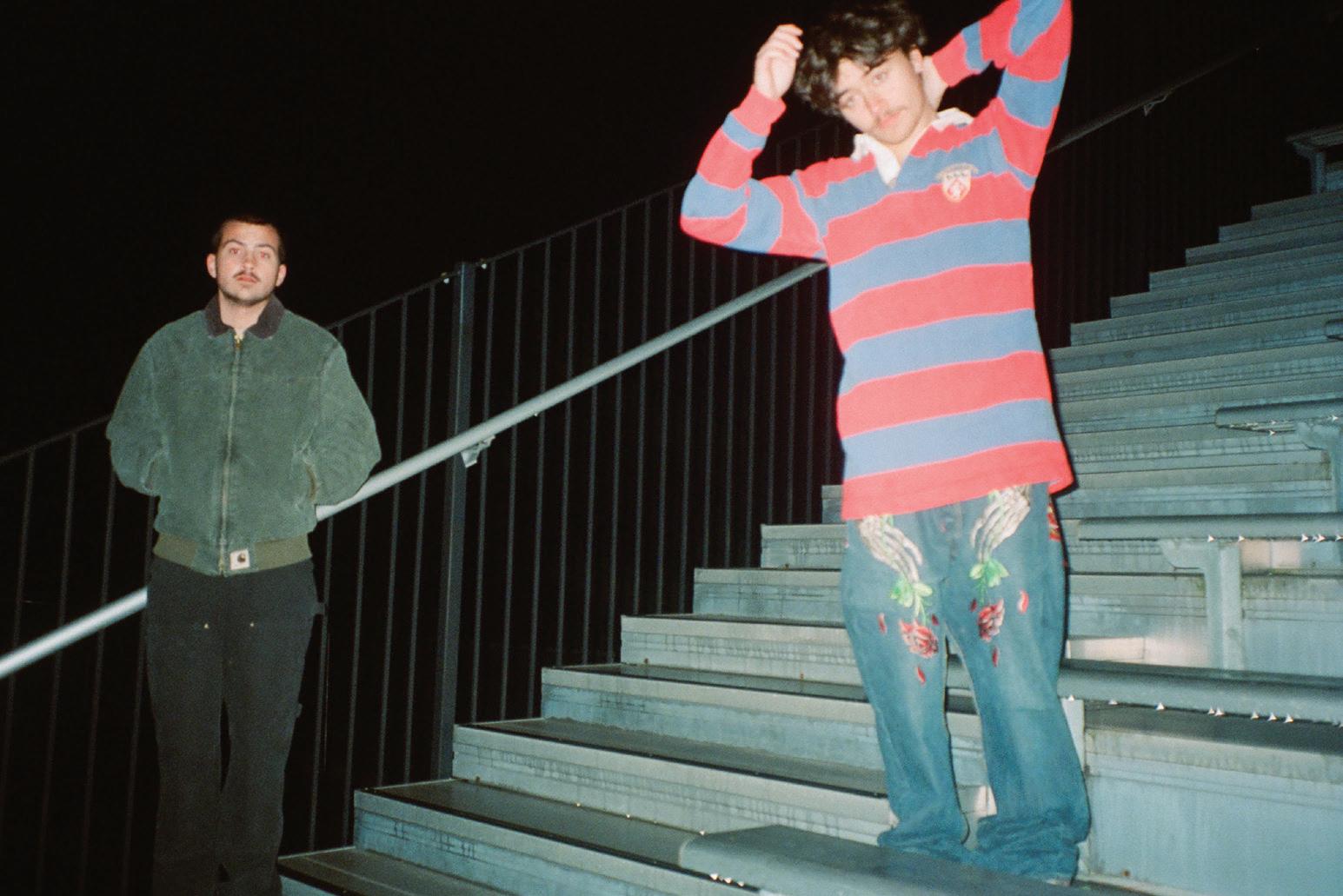
FALL 2022 26 ZIPPED MAGAZINE 27
drawn to similar types of celebrities who do something outlandish and stand out for doing things that seemingly have never been done before.
These days, it feels like everything has been done already. There was a TikTok trend going around for a while where users shared that they felt like they had never had an original thought. This resonated with so many people, but why is it such a relatable feeling?
Maybe people feel this way because it’s true. Maybe everything has already been done, and now all we have is a fierce attention-hungry competition to see who can do the next big thing, if there even is anything new to do.
But has everything actually already been done, and I will never ever have a unique thought again? I then realized that standing out often goes hand in hand with recycling
old trends. Take, for example, Julia Fox’s iconic all-denim outfit made by cutting the top part off a pair of jeans and repurposing it as a top, worn with the newly low-rise jeans, topped off with a matching denim purse and boots. We’re so quick to say she’s iconic for that (no hate to Julia, I literally did this outfit for Halloween), but what about Brittney Spears and Justin Timberlake’s iconic denim outfits back in 2001, over 20 years before? Maybe every new “iconic” outfit, song, artwork, or anything has already been done before.
I don’t believe that fitting in is a good thing. I don’t think anyone should strive to be average because part of being human is being inherently unique and not average. That being said, I also don’t approve of this enormous pressure to be “different.” The result is that when we all try so hard to be different,
mostly by copying the same things we all see on social media, we all end up doing the same thing, leading us to think that we have never had an original thought before.
The need to stand out is a result of caring about what others think, even if we don’t want to admit it. Yes, we all care, even the Lady Gagas, the Britneys, and the Julia Foxs of the world. The reality is that we care about standing out because we care about acceptance into our desired social groups. Maybe standing out really is the new fitting in, in this weird competition of who can do it the best. It gets easier once you can label it and accept it.
“Being yourself” is an arbitrary concept and is hard to define, but think about who you were as a kid, before social media, and before you even knew that you were supposed to care about what people thought.
I think the secret to escaping this pressure is returning (at least mentally) to a time when it didn’t exist to us. There will always be pressure to conform in society, I guess now it’s just disguised as pressure to stand out. To break this pattern, you don’t need to break down the whole system, just your role in it. Start with self-reflection and acceptance. A little social media break doesn’t hurt either…
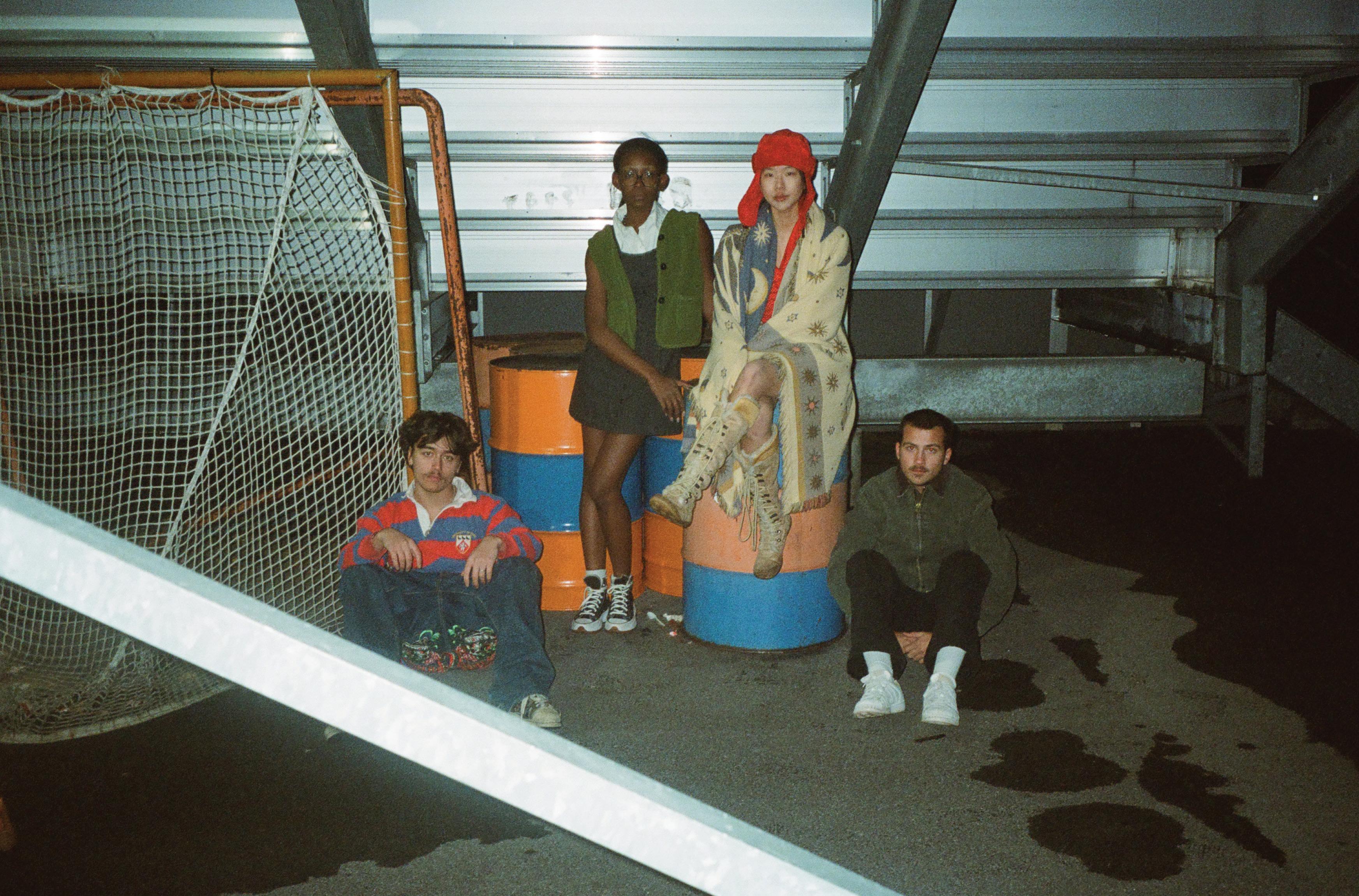
FALL 2022 28
ZIPPED MAGAZINE 29
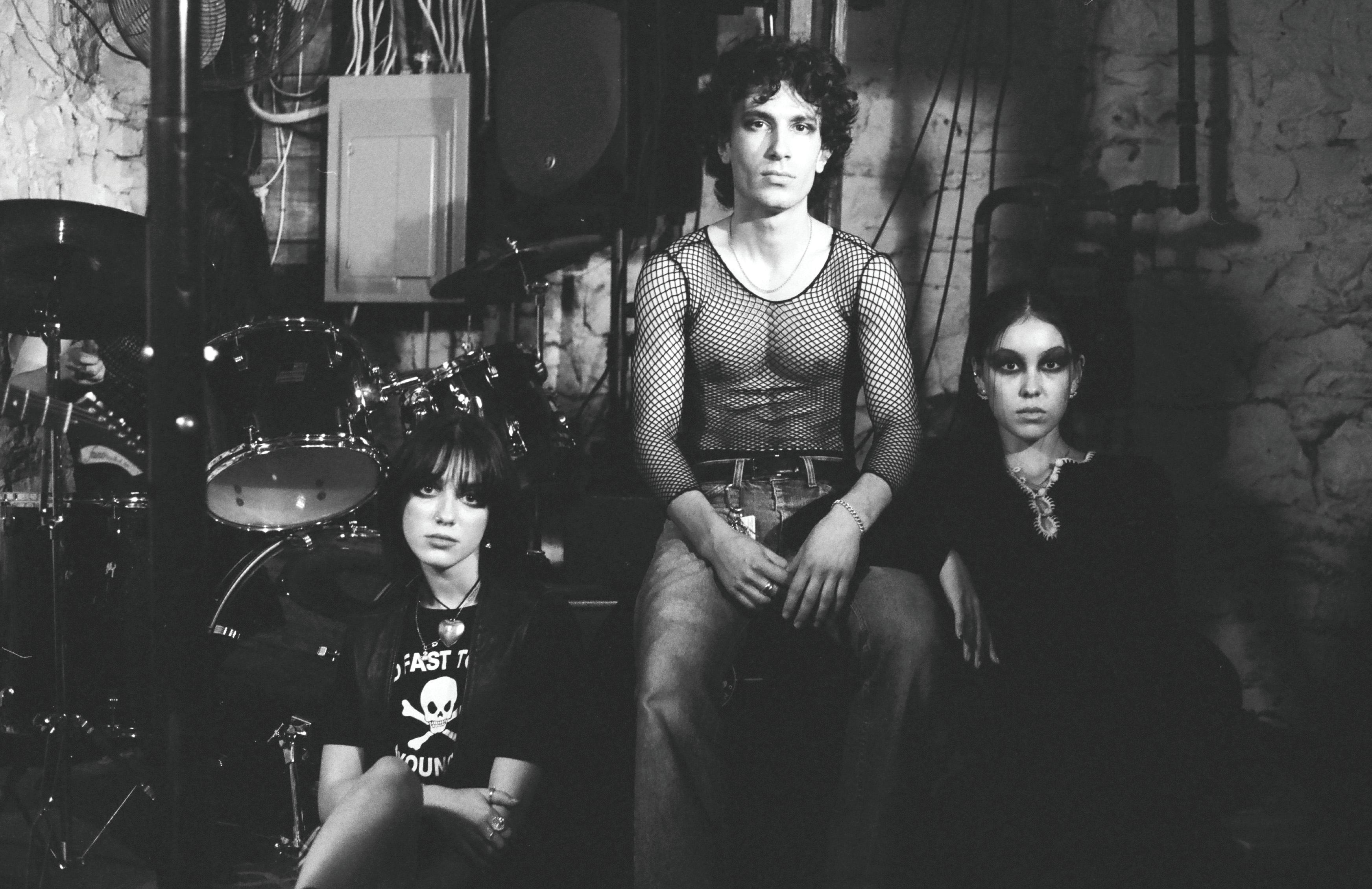
FALL 2022 30 ZIPPED MAGAZINE 31
A Fictional Short Story
By Jack McCarty
My fingers brushed over hundreds of empty frames, carefully curated nicknacks, and endless stacks of TIME magazines, each object a part of my grandmother’s estate sale.
After perusing the seemingly infinite tables, I made my way to the primary fixture of the sale, a large white tent positioned in the middle of the chaos. The warm air generated by the tent exacerbated the smell of a grandmother who once was. Harboring this wistful aroma was her vast collection of clothing. My grandmother’s most sacred treasure was this collection, a time capsule of her life on display for the masses. Vessels of her memories, her triumphs, her losses. Her. Who she was, were these clothes.
Silver buckles reflecting the light, faux fur, soft to the touch, and innumerable shades of denim were just some elements that made up her life’s closet. While my grandmother had an established sense of style, she wasn’t afraid to push the boundaries of her comfort zone. She mixed Americana with present-day street style, put her
own spin on Bohemianism later in life, and ran with the Punk Era of the 80s. Every aspect of her personality, every fiber of her being, were these clothes.
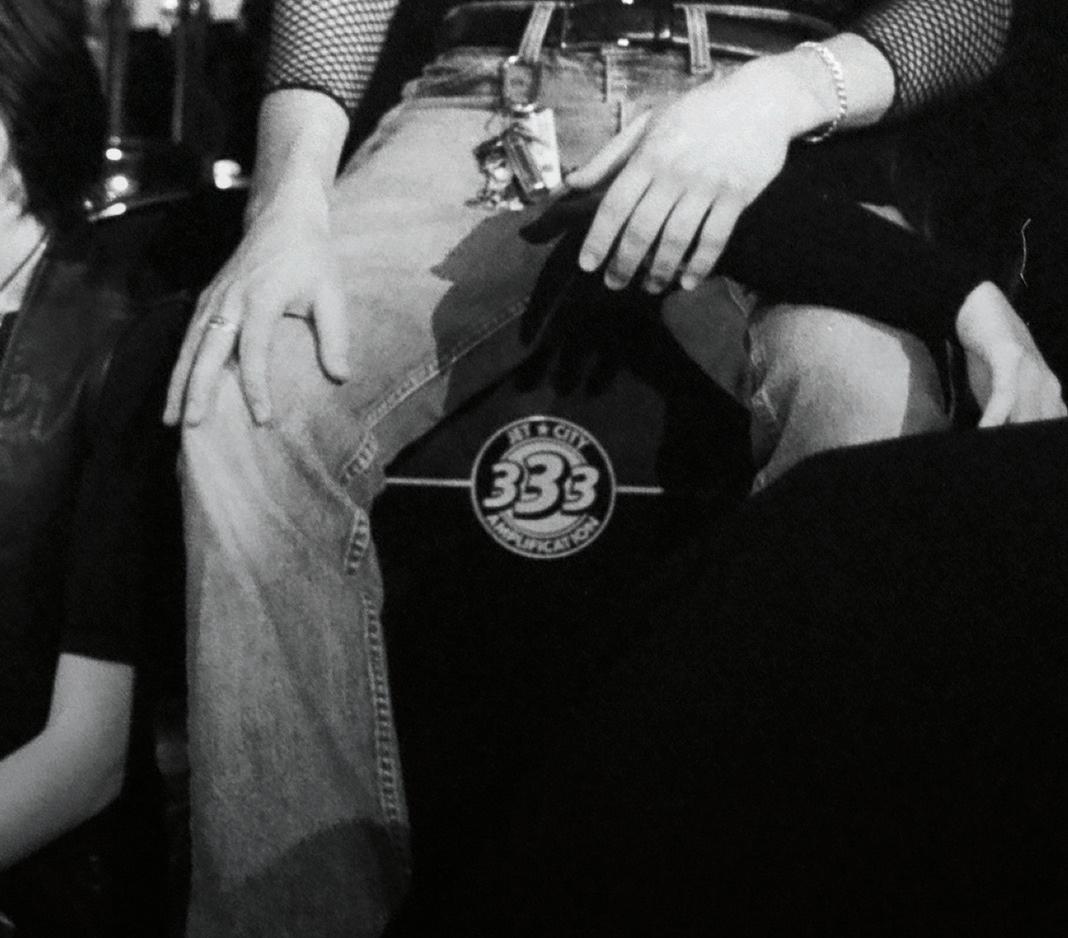
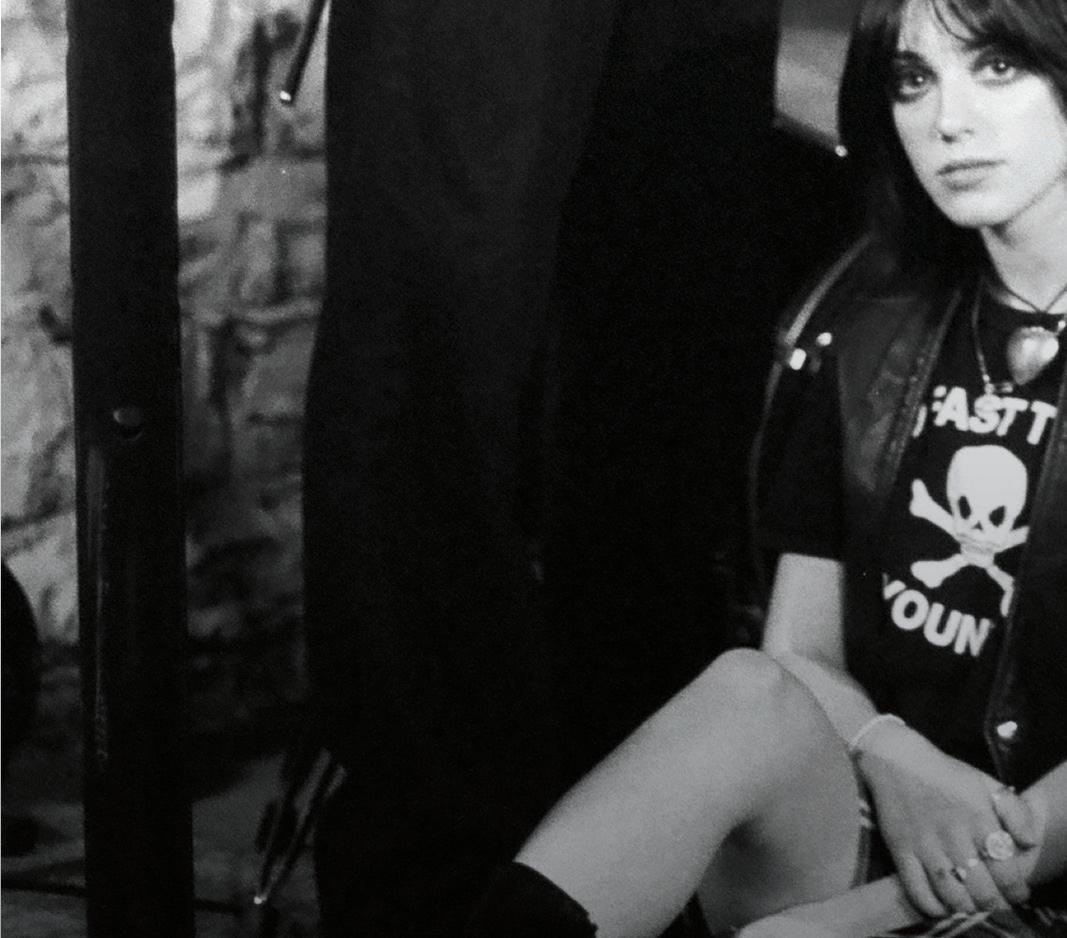
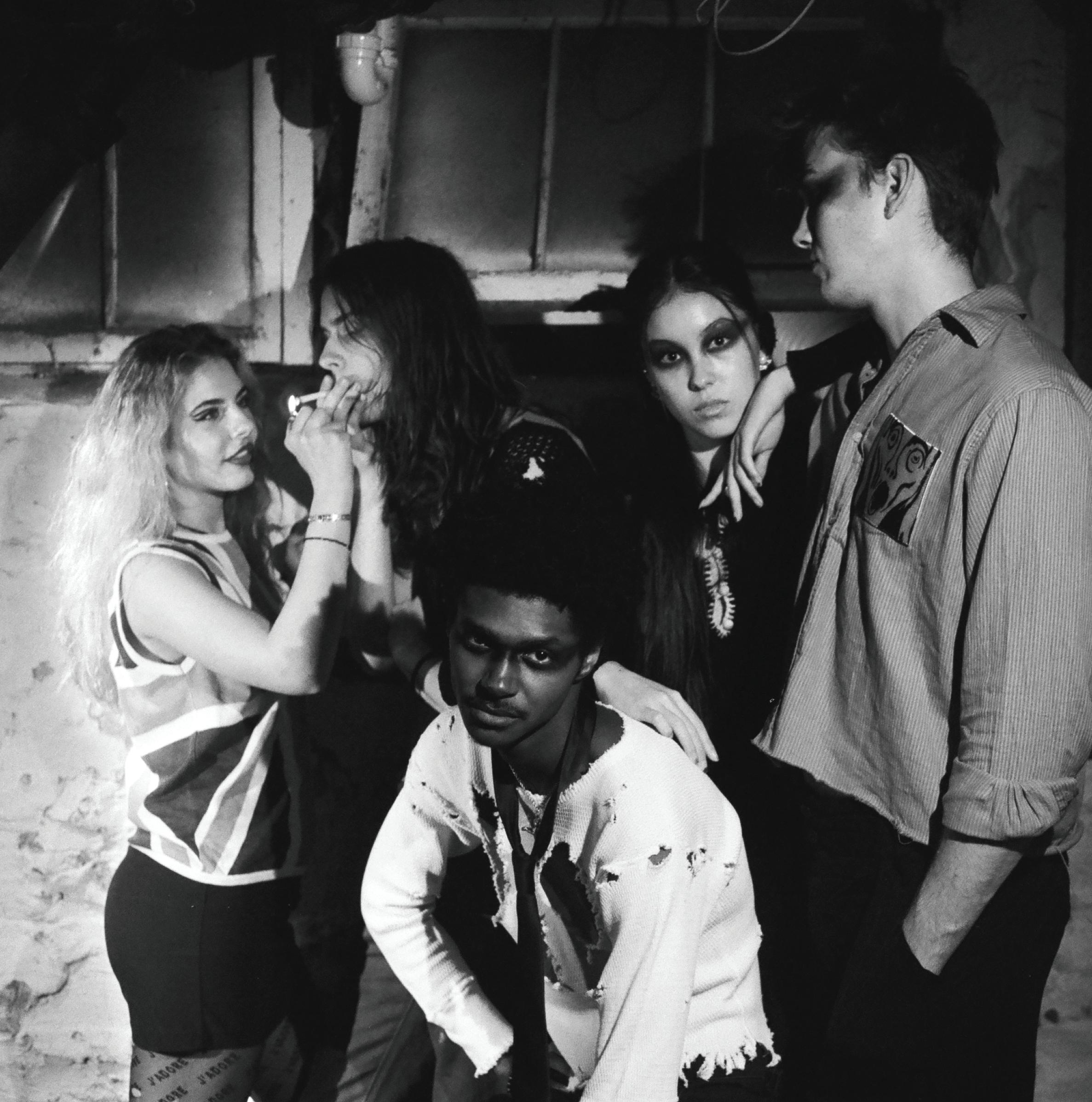

Mesmerized by what was in front of me, I neglected the feeling of my mother’s hand pressing up against my shoulder. Her faint, somber whisper, “Grammy was pretty cool, wasn’t she?” pulled me back into consciousness. I turned to see her succumbed to emotions, emotions generated by my grandmother’s clothing. My mother’s eyes were puffy and red, tears streamed across her cheeks, taking fragments of her mascara with them, and a heartbroken smile accompanied her face. My mother had held it together all day, now she stood transported into a lifetime of memories. The nostalgia was almost too much to bear.
Seeing my mother in this state had cemented something I already knew, fashion was more than just textiles composed to keep an exposed body covered or convey a sense of status; fashion was a thread line throughout our lives, a commonality amongst the human race, and the apex of someone’s personality.

Not only were the empty frames, carefully curated nicknacks, and endless stacks of TIME magazines supposed to be sold at tomorrow’s sale, but the tent crammed with her clothes was understood to be the predicted “first to go.” My grandmother’s plethora of fashion items had stirred up local attention, prompting buyers from all walks of life to inquire about her clothing. I think this possibility is what alarmed my mother, the thought that my grandmother’s essence would be sold could not manifest itself in her.
My mother walked swiftly out of the tent, kicking up dirt as her Chuck Taylors pounded the clay beneath her. She forced open the driver’s side door of our pickup, cranked the engine, and reversed into
the opening in the tent. Within minutes, most of my grandmother’s clothes were now stuffed into the bed of her truck. She looked at me, noticing I was puzzled by her actions, pointed to the passenger side, and sternly said, “get in.”
We drove through the winding back roads of western Virginia, accompanied by a rotation of my grandmother’s favorite tunes. Dolly Parton’s bird-like vocals echoed throughout the truck’s interior one second, while Marvin Gaye’s brassy tone filled the next. Looking back, the sun’s golden rays, the wind’s childlike energy, and the merry-go-round of eclectic music gave life to the clothes filling the bed. It felt as if my grandmother was there, and maybe in some ethereal sense she was.
Just at the cusp of Aretha Franklin’s adaptation of Bridge over Troubled Water, we arrived back in our driveway. My mother got out of the car, swung the tailgate open,

and began carrying the clothes into our living room. Instinctively, I, too, started moving heaps of clothes into our home. he clothes were the same, the location was just different. Each piece still held an undeniable gravity, even away from my grandmother’s property. I felt a unique sense of comfort as I sat down, immersed in her clothing. Our home hadn’t felt this alive since my grandmother’s passing. Tears drifted into the corners of my smile - opposed expressions for an opposed emotion.
Murmuring through the tears, “Did you want it to feel like she was here one last time?”
“No. Not one last time, all the time.” My mother affirmed.

FALL 2022 32
ZIPPED MAGAZINE 33
By Kaiya Vicioso
Whether it stems from a burning desire to go against the grain, a result of growing up and trying to shape an identity for yourself, or used as a way to cope with other things going on in your life, no one rebels for no reason.
The word rebellion holds different meanings for different people—whether they think of it as the time they snuck out of their window when their parents were asleep, or leaving the house in an outfit that would eventually be swapped for another, perhaps, less “appropriate” one.
For some people, this rebellion comes in short-lived spurts, one night of breaking the rules. Others experience what we’ve come to know as a “rebellious phase.” I fall into this category of people.
Looking back on it, think I had the lamest rebellious phase ever. It wasn’t even like I was doing anything cool, like sneaking out or taking my parent’s car out after dark—I was 13, and I lived on the 6th floor of an apartment building in Manhattan, so these two classic forms of rebellion were
never really an option for me. Instead, my rebellion came in the form of the dreaded emo phase. This manifested itself in purple dip-dyed hair, Hot Topic band T-shirts, music that, honestly, half the time was just people screaming, and being an absolute asshole to my mom. I think this emo phase and my attempt at being rebellious was a result of something deeper, though—I think all acts of rebellion are.
I think my rebellion came from confusion about who I was, who I was going to be, and what my place in the world was. I was starting at a new school, an all-girls Upper East Side private school that I was going to on a full scholarship. I was not from this world—I knew I wouldn’t fit in, but I had 16 months of preparation through a program designed to prepare gifted public school children for private school, helping them get scholarships: opportunities.

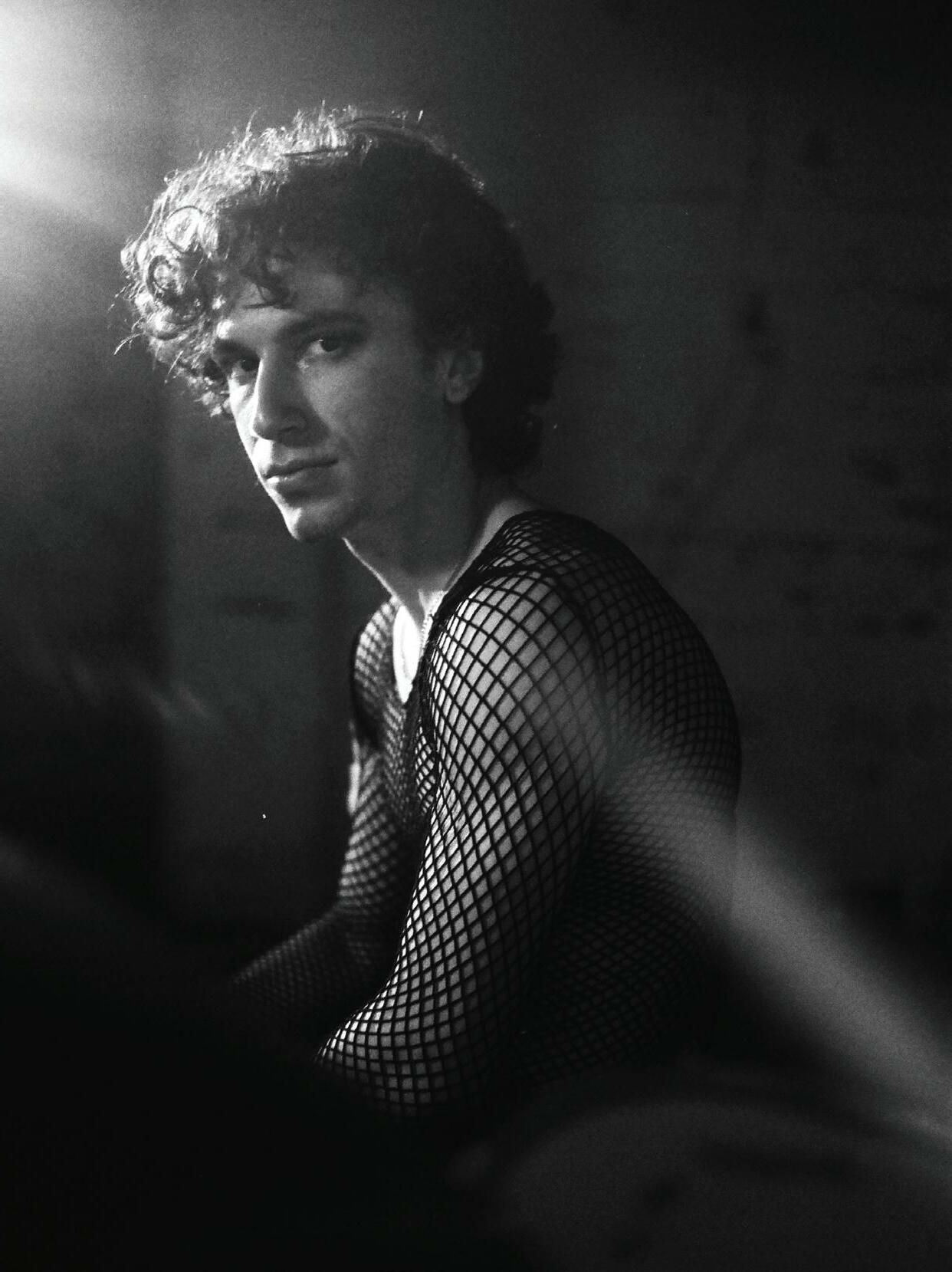
During these 16 months of doing two course loads of school work—my school homework along with the homework
from the program—I needed to find a way to deal with the stress of managing more work than I had ever been responsible for doing in my life, and the influx of anxiety that came with hearing about and touring these schools that I would potentially be attending.
Would I fit in? Would people think I was the weird scholarship girl?
I was anxious, maybe even a little depressed. One of my friends from the program introduced me to a band she liked, My Chemical Romance. I thought it was so cool. I resonated with what they talked about in their songs—the angst, the anxiety, the anger.
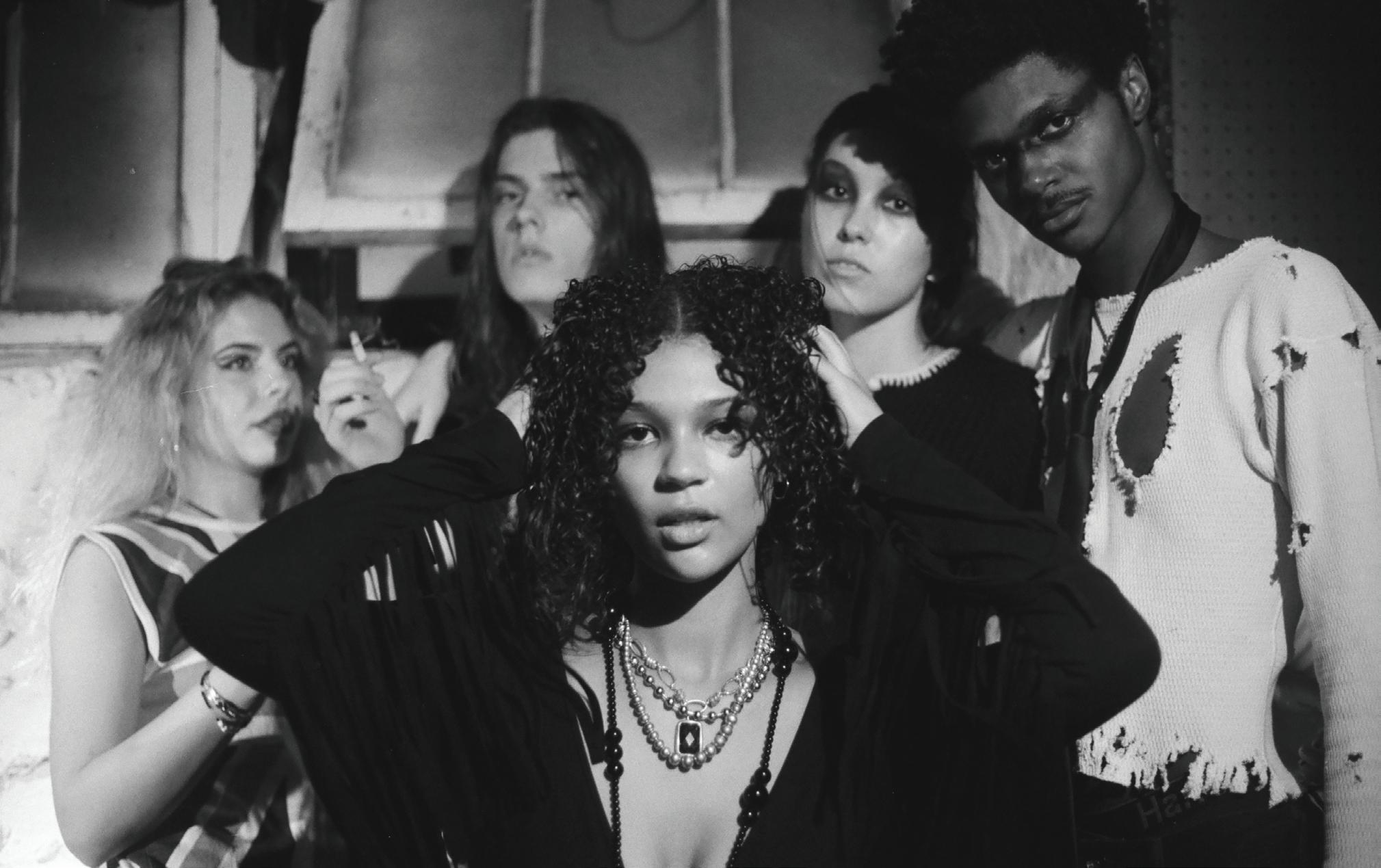
I let My Chemical Romance shape me, the clothes, the purple hair, the classic black Doc Martens, and the skull-printed
everything. Looking at the picture from my graduation from the program makes me laugh—even at a formal event, I still found a way to be emo. I went back through the archives of my father’s Facebook to find this gem of a photo. In it, I’m rocking black nail polish, leftover blonde from my purple dip-dye, a skullprinted dress, and leather heels.
Eventually, this phase died out. I got to my new private school, and yes, everyone thought I was weird—or at least they acted like it. I had an extremely hard time making friends and connecting with my new peers, and it felt like the only people who acknowledged my presence were the other girls who had been socially ostracized and outcasts, the other “weird” girls. We were all struggling to make sense of our identities that didn’t fit into the norm of privileged, Upper East Side private school girl.
My new mission became doing whatever I could to fit in instead of standing out, which meant ditching the clumpy mascara, leather bracelets, and dipdyed hair. I look back on this emo phase with mixed feelings, some of cringe and embarrassment, others of pride that my younger self had the guts to dress and act how I wanted during that short time when what other people thought of me didn’t have as much of an effect of my self-confidence and self-worth. I think younger me would be proud that I’ve embraced a little more of 13-year-old Kaiya in my post-high school life.
FALL 2022 34
35























 Paris Mclean, 41, via Montclair, N.J.
Paris Mclean, 41, via Montclair, N.J.

















 P.A.
Tilly
P.A.
Tilly





































